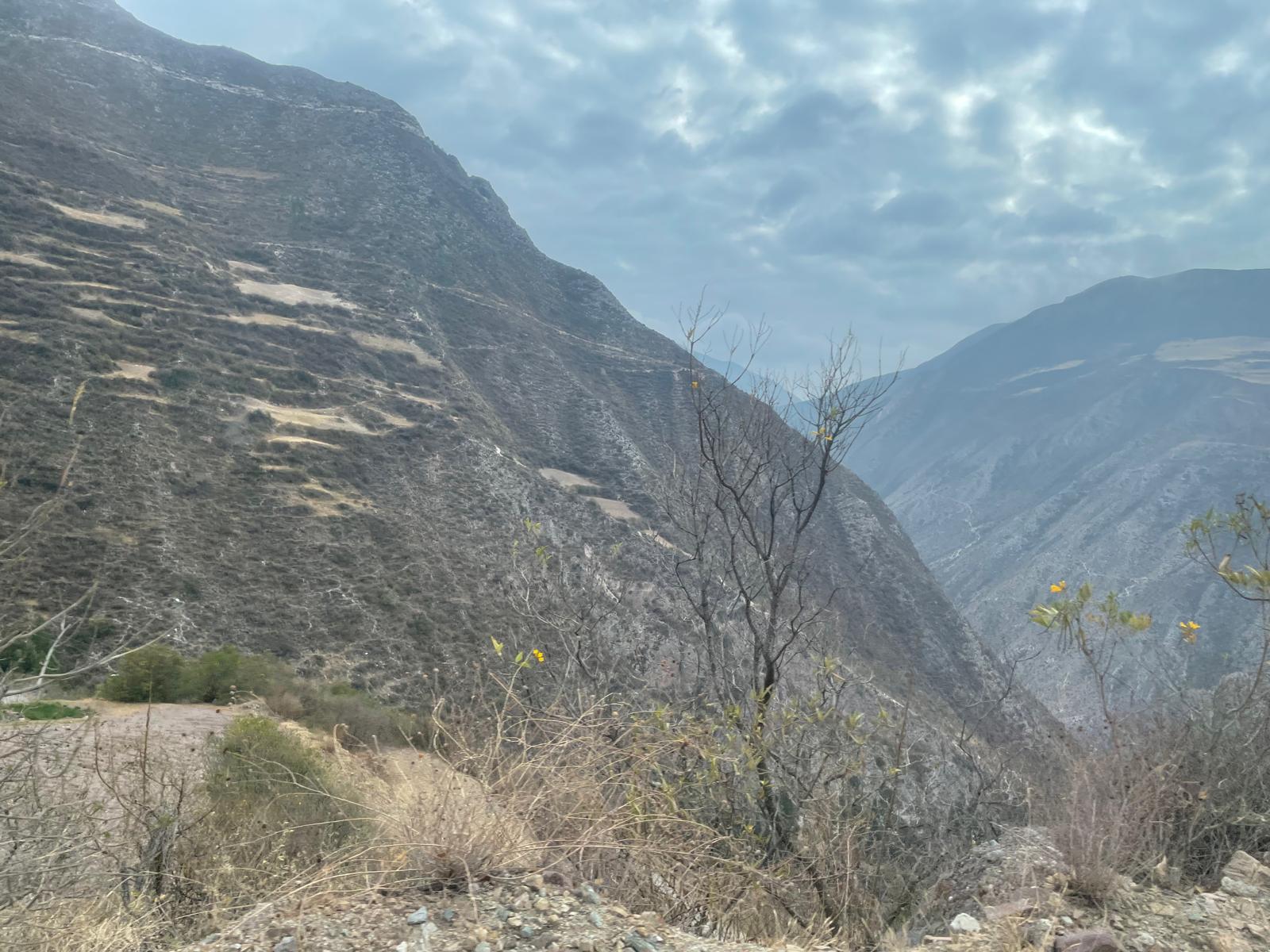
Week 47: Monday, September 2nd-Sunday, September 8th
Week 48: Monday, September 9th- Sunday, September 15th
Days of RTW ’24 completed: 154
Total Days of RTW ’23-’24 completed: 353
Starting location: Cusco, Peru
Ending location: La Paz, Bolivia
Foot Miles completed this week: 66.4
Nautical Miles completed this week: .52
Bicycle Miles completed this week: 0
Bus Miles completed this week: 373.7
Train Miles completed this week: 52
Car Miles completed this week: 17.3
Tram Miles completed this week: 0
Tuk-tuk Miles completed this week: 0
Air Miles completed this week: 0
Scooter Miles completed this week: 0
Total Foot Miles on RTW ’24: 668.23
Total Nautical Miles on RTW ’24: 1,345.52
Total Bicycle Miles on RTW ’24: 126.8
Total Bus Miles on RTW ’24: 1,951.75
Total Train Miles on RTW ’24: 153.8
Total Car Miles on RTW ’24: 3,124.8
Total Tram Miles on RTW ’24: 0
Total Tuk-tuk Miles on RTW ’24: 195.56
Total Air Miles on RTW ’24: 29,581.37
Total Scooter Miles on RTW ’24: 272.5
Total Miles via all transportation modes on RTW ’24: 37,979.18
Total Miles via all transportation modes on RTW ’23-’24: 54,891.54
On Monday morning, Gena, Alex and I began our hiking adventure! We woke up bright and early, and Caesar (our guide) arrived with a driver to pick us up from our Airbnb. We made our way to the trailhead, arriving by 7:45. We were eager to get started, excited for a new adventure. I knew that the day would be challenging, but I’m not quite sure I was fully prepared for just how challenging it would be. I was nervous! I feel like I’m always the “slow one” on hills, and coupled with high altitude, I was even slower. Hiking is second nature to me and being in nature is my happy place, so I listened to my body and when I felt my heart rate getting too high, I’d stop and rest, which was often. Caesar took frequent breaks to describe the trees, plants, and Quechua culture to us as we hiked. I was thankful for the lessons AND the breaks! He spoke of the Quechuan messengers; young men who would relay messages through the mountains carrying messages made from knotted rope strands. Their tongues were removed in case they were captured by the Incas, so they couldn’t reveal any secrets. Alex, Gena and I were somewhat familiar with Inca history from our US schools, but learning about the Quechuan history was new and fascinating! Before the Spanish and Incas, there had been thriving civilizations in the Andes. Caesar is Quechuan and shared information about his family (1 of 9 siblings– 4 brothers, 4 sisters), customs and rituals. Learning about such a rich history during the hike certainly helped alleviate the difficulties! Slow and steady was my mantra. There were several places with big rocks and a steep upgrade. My poles were useful and helped set a good pace for me. Gena, on the other hand, was a total rockstar keeping up with Caesar, joking and chatting as they made their way up. I’ve always had the utmost respect for her athleticism, and at 20 weeks pregnant, she took it to a whole new level. Alex (her husband), kindly stayed behind me, patiently letting me take it slow. We arrived to our campsite around 11:30, though it certainly felt like it took much longer than that. We enjoyed a lunch, tea time, and dinner, then settled in for the night to prepare for another day of hiking!
We woke up early again the following day and began hiking by 7:00 a.m. The four of us fell into our “natural” order with Caesar in front, Gena right behind him, myself at a lengthier distance behind and then Alex, just behind me. Caesar and Gena would stop and wait for us, giving all four of us frequent breaks, marking our accomplishments by looking back from where we had come. The views were spectacular, and with the wide open valleys it was easy to see the distance we’d achieved at each stop. The mountains were muted greens and browns since it was the dry season with patches of irrigated bright green farm fields dotting the valleys. Just before our lunch stop we had an especially steep climb on a dirt and rock pathway only one person wide with frequent switchbacks. We could see other hikers at the top of the ridge. As I crested to the ridge top, I gasped out loud! There, right before my eyes, was a snow capped mountain: Mt. Veronica! All of a sudden, I felt cold– from stopping hiking and from the wind on the open ridge. I put on my puffy jacket and soaked in all of the majesty! Our cook had prepared a hot lunch, waiting for us about a twenty minute hike from the summit. Gena, Alex and I took a twenty minute nap in the sun afterwards, and then we were back at it! The afternoon challenge was a very steep and rocky descent down for a couple of hours. The switchbacks and loose rocks meant we were going at a very slow pace, side stepping to give our feet traction. At one point, Alex said “I never thought I’d want the uphill climbs again, but this is harder!” All of us used walking poles on the descents. My feet could feel the rocks through my hiking boots! It was very tedious as the afternoon sun beat down on us. We had chosen the quarry trail and we were in the middle of the fallen rocks. Around 4:00 p.m., the path became smoother and the sun was getting lower in the horizon behind the mountains. We could see the sun gate, a stone structure built by the Incas for rituals and astronomical purposes. Yet, we had another climb to the top to see it up close and get pictures. Caesar said we had another 45 minutes to get to our campsite. Feeling tired and sore, I was glad to think that the last stretch of the day was the only thing that separated us from our tents, food and rest. We kept going, and at one point, Caesar stopped to inform us about the quarry’s history, but all three of us only half listened and ultimately said, “We’re tired, Caesar. Tell us at camp later”. So, we carried on, and Caesar called the cook. There was some confusion as to where they had set up camp for the night. We passed where the other hiking group had been, so, surely, it couldn’t have been much farther from where we stood. But, it was, and the sun was setting. Finally, the horsemen came with a flashlight, Caesar turned on his, and he guided me the rest of the way in the dark. I was so tired and concerned that I’d trip or fall from being exhausted in the dark. “This is my life now”, I kept saying to myself. There was no past or future, just each moment and each step. That’s all I could focus on. Meanwhile, Alex had caught up with Gena and the horseman. I could see their light getting further away. Eventually, Caesar and I made it to camp and Gena greeted me with a big hug. When dinner was ready, we ate in silence. Caesar did own up to the confusion about where the night’s camp was. Apparently, the cook needed a water supply, which was much further away than he expected. I was more tired than hungry, so I ate a little and went straight to my tent. Overall, the day was absolutely epic! It was the hardest hiking day I’d ever done, but I did it!
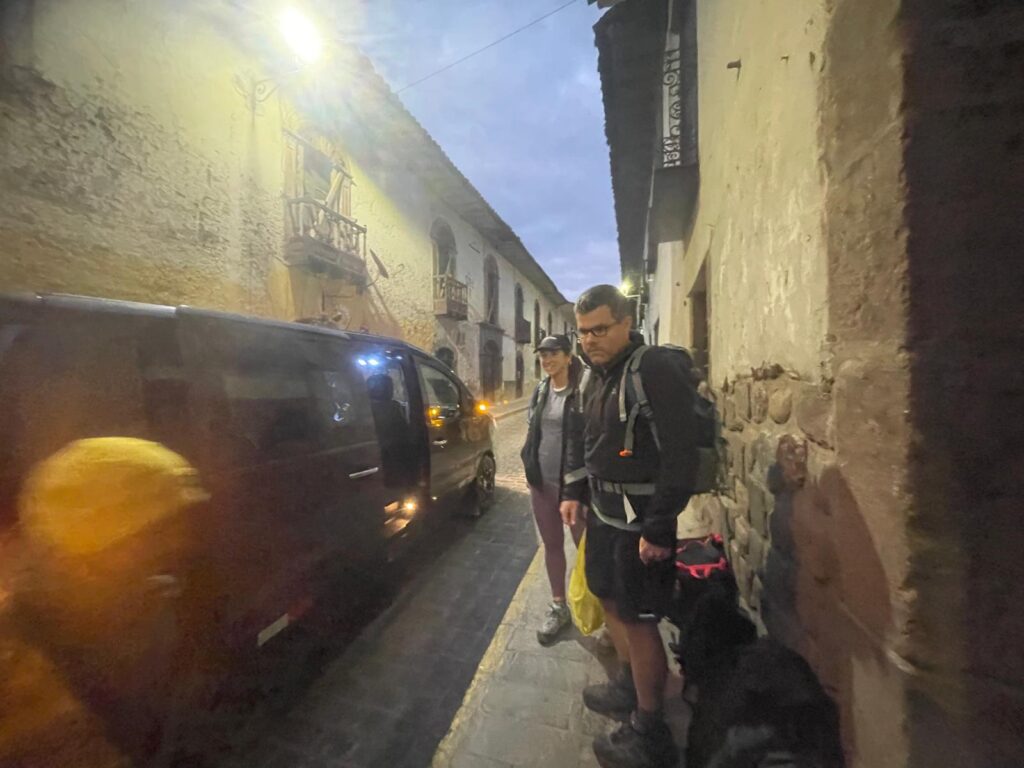
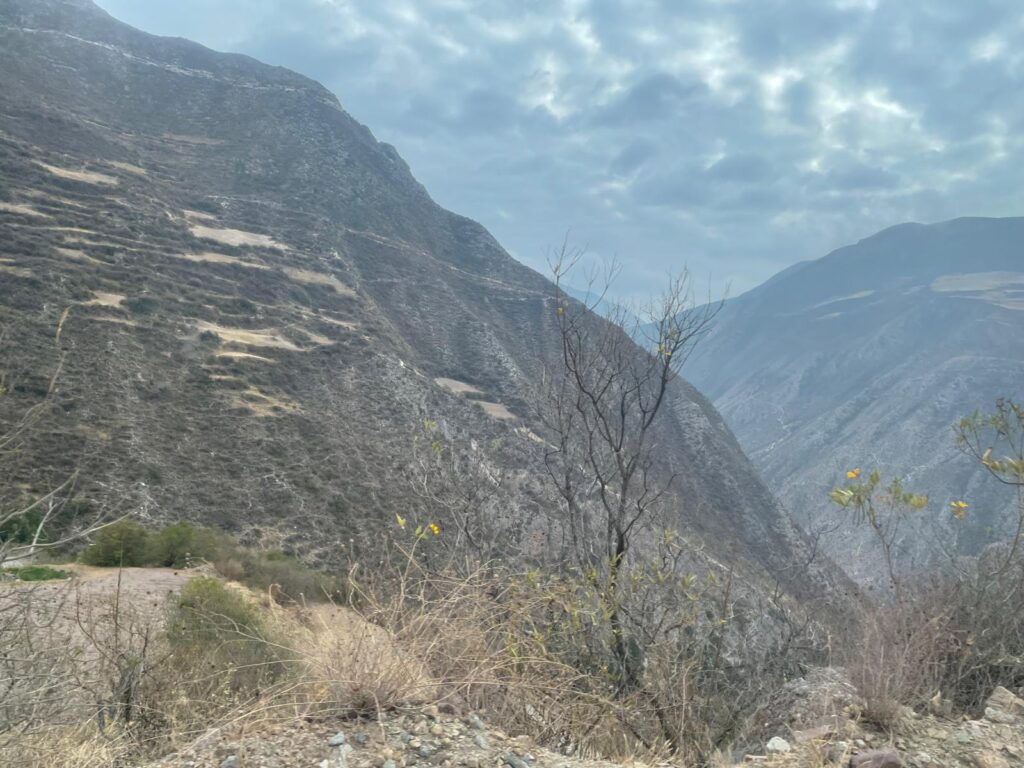
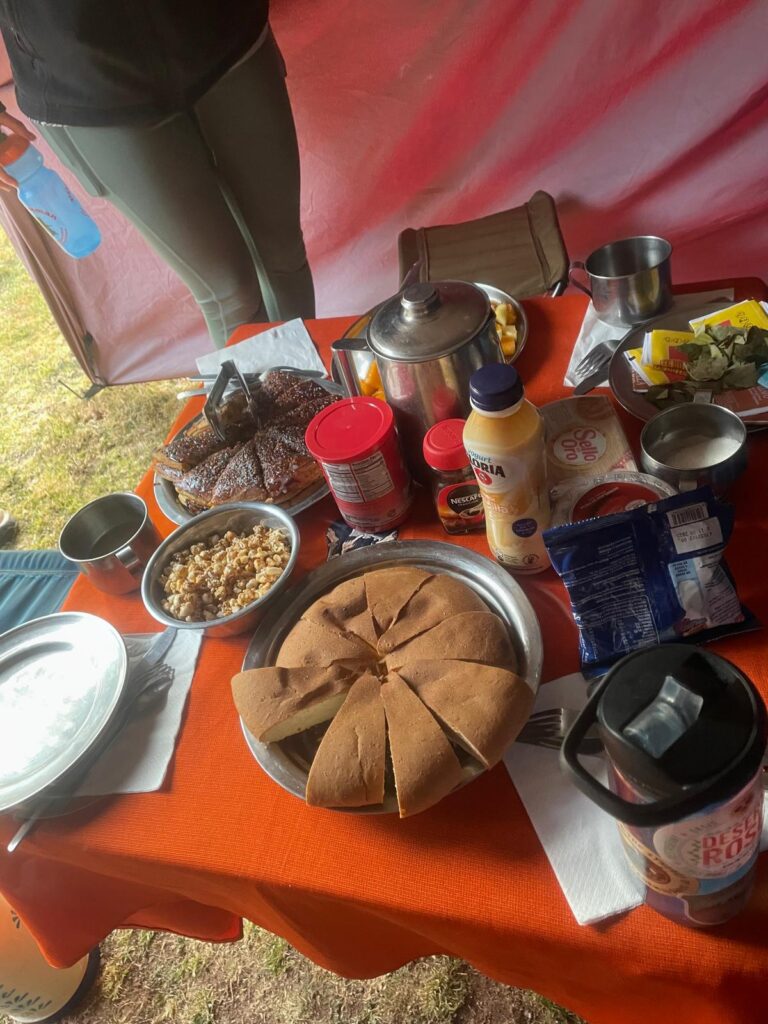
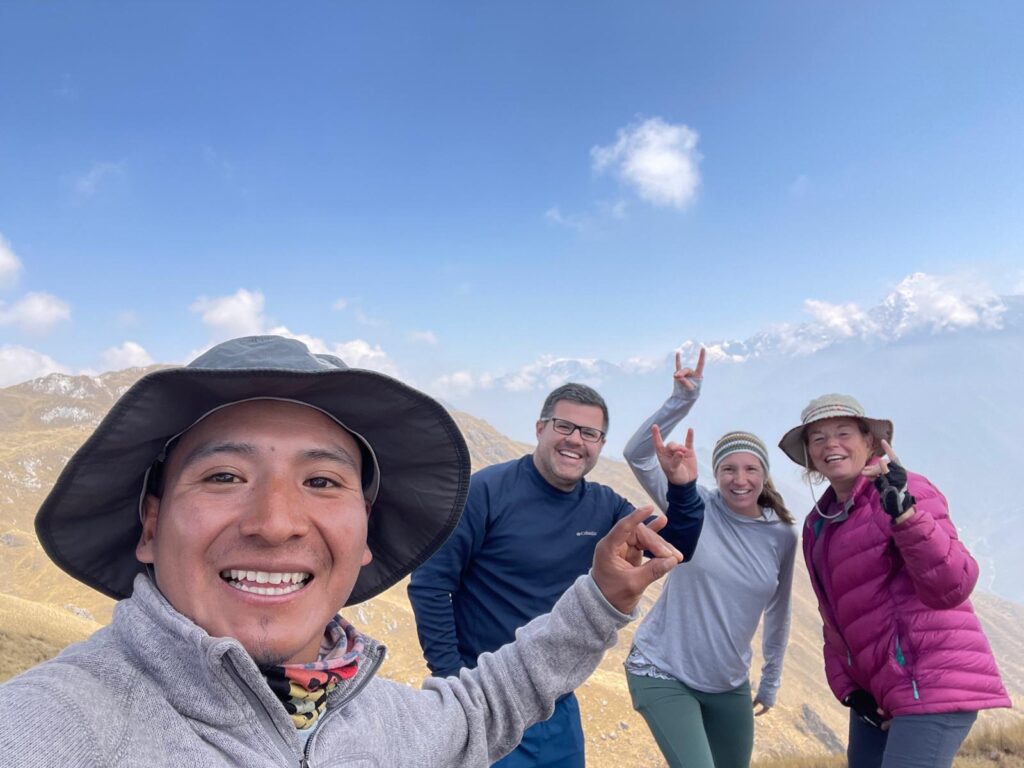
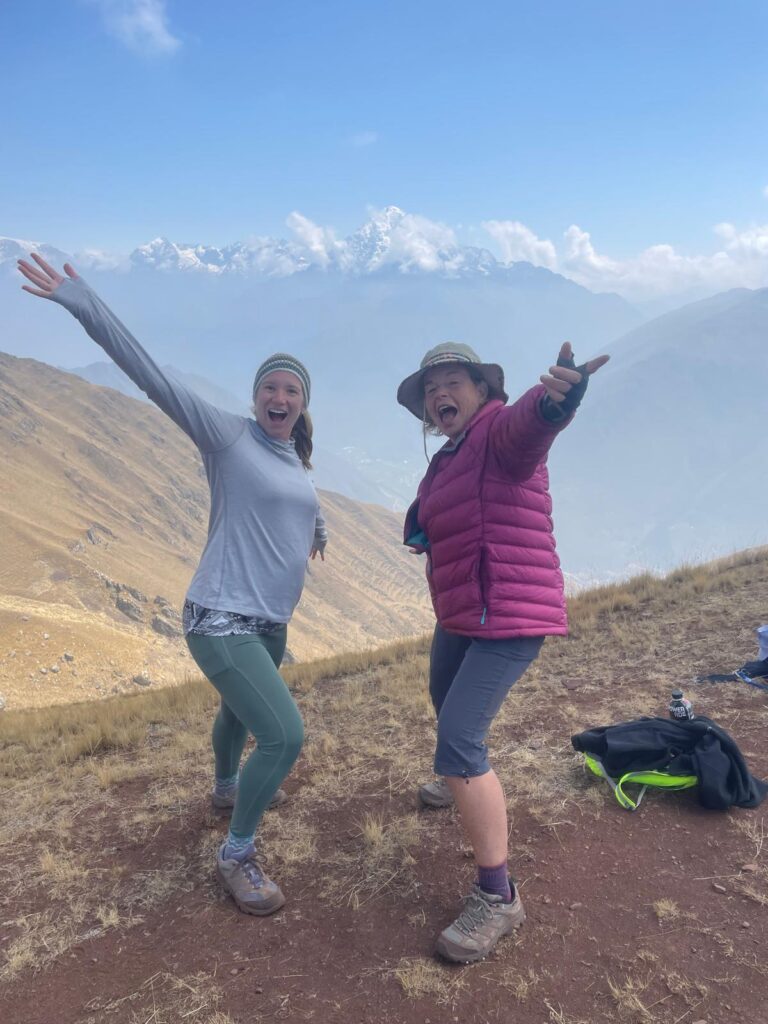
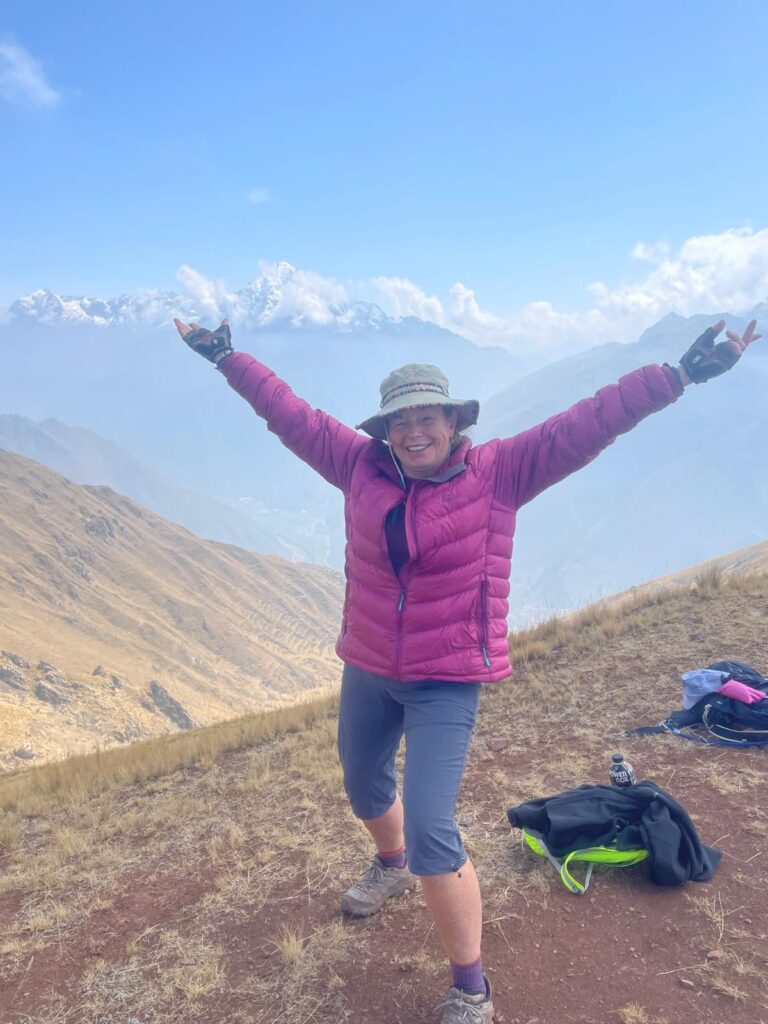
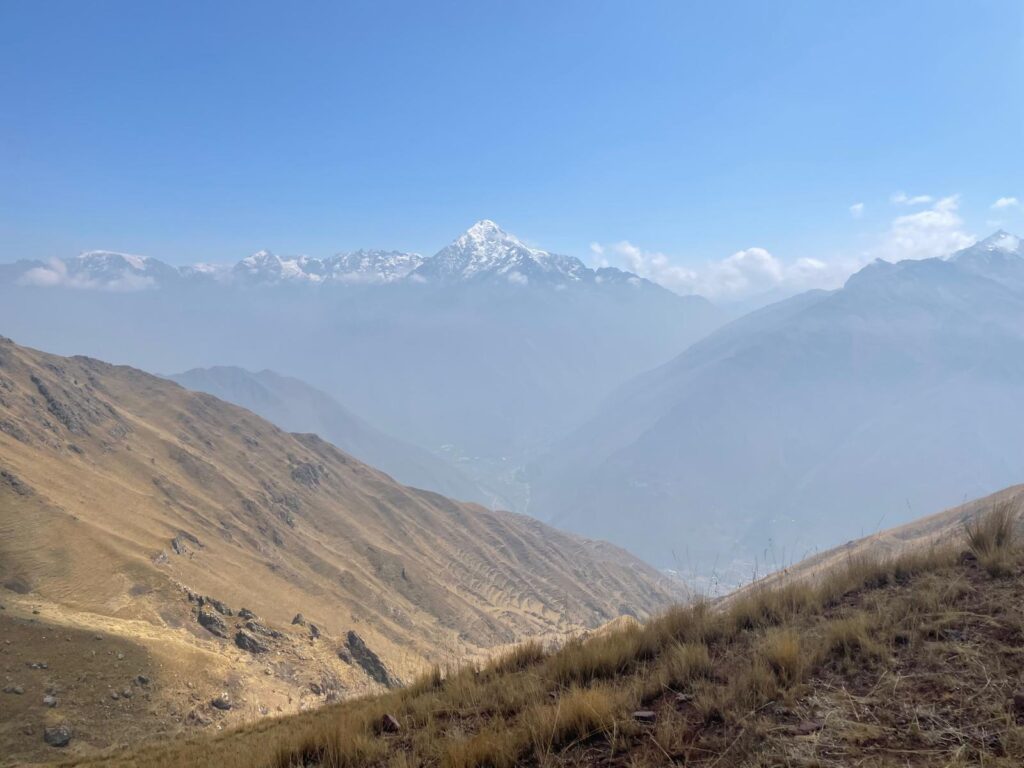
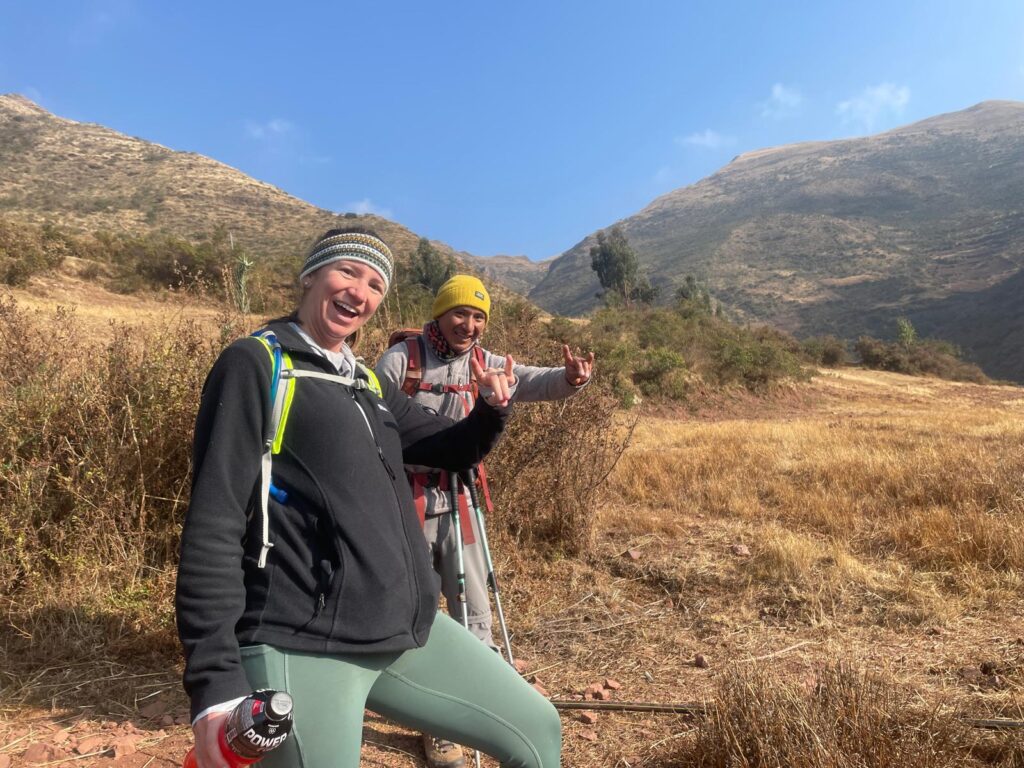
After a brutal hiking day, waking up early and hitting the road again seemed a little daunting. Nonetheless, we persevered! The morning hike proved to be much easier than the day before. Not only was it much faster (7:30 a.m. to 11 a.m.), it was mostly downhill on a dirt and gravel path. It was a little bittersweet to leave the wilderness of the mountains and return to the hustle and bustle of a tourist town, Ollantaytambo, a town where everyone except those hiking the full Inca trail start their journey to Machu Picchu. Seeing all of the tourist shops and open markets reminded us that we were making the shift from hikers to tourists again. It was a bit of a culture shock to shift from the remote hiking routine back to being around so many people in a tourist environment. Both are part of the travel experience that I relish, however, it’s still a transition. I was grateful to share it all with Alex and Gena! Alex and Caesar waited in the square for our tour company to return all of our luggage while Gena and I explored the small town’s shops and markets. Once we had all our belongings, Caesar walked us to the train station and we said our final goodbyes to our hiking guide. There had been some bumps along the way, but overall, Caesar had been a wonderful guide and provided us with an authentic Andean mountain experience. As we waited for our ride to Aquas Calientes, we realized how welcome a shower, proper toilet and real bed would feel! Sometimes, you have to do without to appreciate the basic necessities. Our 90 minute train ride was very bumpy, but offered a scenic view of the mountain we just conquered over the prior 3 days. At dinner, we reminisced about the hike, its challenges, majestic views, and our appreciation for hotel amenities. Life on the road in all its forms is richer when shared with good friends around a table enjoying a delicious meal.
Thursday marked a big event: Machu Picchu! We had an early breakfast at our hotel, met Sam, our MP guide, and headed down to the long queues for our bus pickup. We could feel the excitement in the air and commented on how it felt like a Disney Park (well run logistics and big attractions) and staging queues at a big marathon race. Once Sam got us to the correct line for our 8:00 a.m. pickup, he left to grab a coffee. Gena and I people-watched and found our favorite ponchos and outfits in the crowds. The fashion attire was definitely Instagram focused (lots of tourists in ponchos and matching group vacation T-shirts). The 25-minute bus ride was like a Disney ride of switchbacks climbing up and up to the Inca ancient lost city. At the park entrance, Sam guided us again to the proper queue and, once inside, we followed his lead on where to find a quiet spot and good views. The crowds were moderate since it was early in the day. Approximately 5,000 people visit Machu PIcchu every day! The Peruvian government has limited the number of visitors to protect the site for future generations. It became a UNESCO World Heritage site in 1983.
Sam was a great guide, very diplomatic, and gave us many insights into what it was like living there in the 15th century. I appreciated his candor. Machu Picchu means “old mountain” in Quechan. It was constructed as an estate for the Inca emperor Pachacuti (1438-1472). The Inca built the estate around 1450, but abandoned it a century later at the time of the Spanish conquest. Looking at stone remains of the once-thriving privileged community and listening to Sam’s explanations, I could easily imagine what it was like to have lived there. The complex had over 150 structures including temples, an astronomical observatory and residences. The 15th-century citadel, also known as “the lost city of Incas”, was found by American explorer Hiram Bingham in 1911 with the help of local people in the area. He paid 1 sole for taking items from the site. He had hoped for gold and silver, but none were found. 90% of the artifacts taken from Machu Picchu are at the Yale museum in Connecticut, where Bingham was a professor. Sam said that the native people are mostly happy because tourism is a big part of the economy, but they would like to have their artifacts back, which seems reasonable. A few items have been returned to Cusco, but the people feel like it was the “leftovers” and merely a gesture. It’s a common and complicated dilemma from the colonial period in many cultures.
We made our way to the iconic photo spots, and Sam’s talents as a photographer came out. He took our phones and positioned us perfectly while taking picture after picture. Gena and Alex shared their good news about baby #2, and had brought ultrasound photos to capture the moment at the iconic location. Sam went into full photographer mode, giving them what felt like a professional photo shoot for the occasion. We spent the next hour or so walking down into the ruins and learning more from Sam. He had photos to share but didn’t refer to any notes, which was very impressive. We were in good hands! As our time drew to a close, Sam led us out and to our bus queue. We said our goodbyes to him and made our way back to Aquas Calientes, the long way back to Cusco. After a train ride to Ollytambo, we were greeted by our taxi driver who brought us directly to the Cusco airport where Alex and Gena would start their very long journey back home to Rhode Island, USA. It was bittersweet that they were leaving. I am so grateful that they carved out time from their busy lives to join me in Peru. We shared so much in such a short time; priceless memories. Earlier, we learned from Sam that the Quechan don’t have a word for “goodbye”. Rather, they say “tupananchiskama”, which is a phrase that means “until we meet again” or “until next time”. So, not quite goodbye, but until next time!
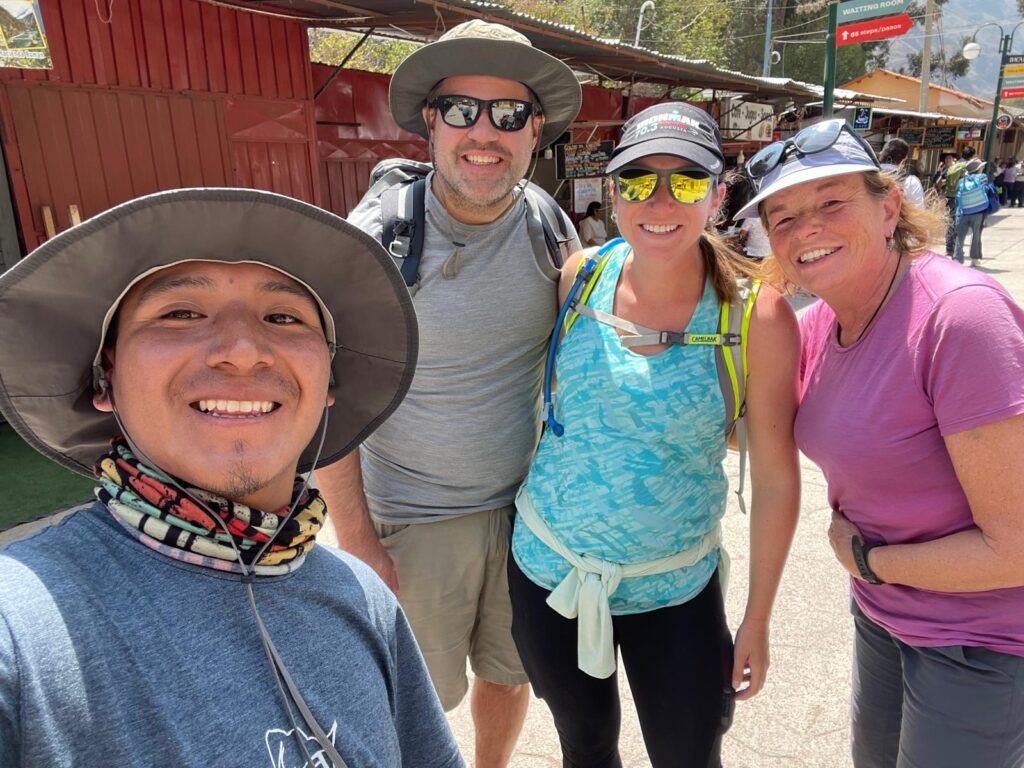
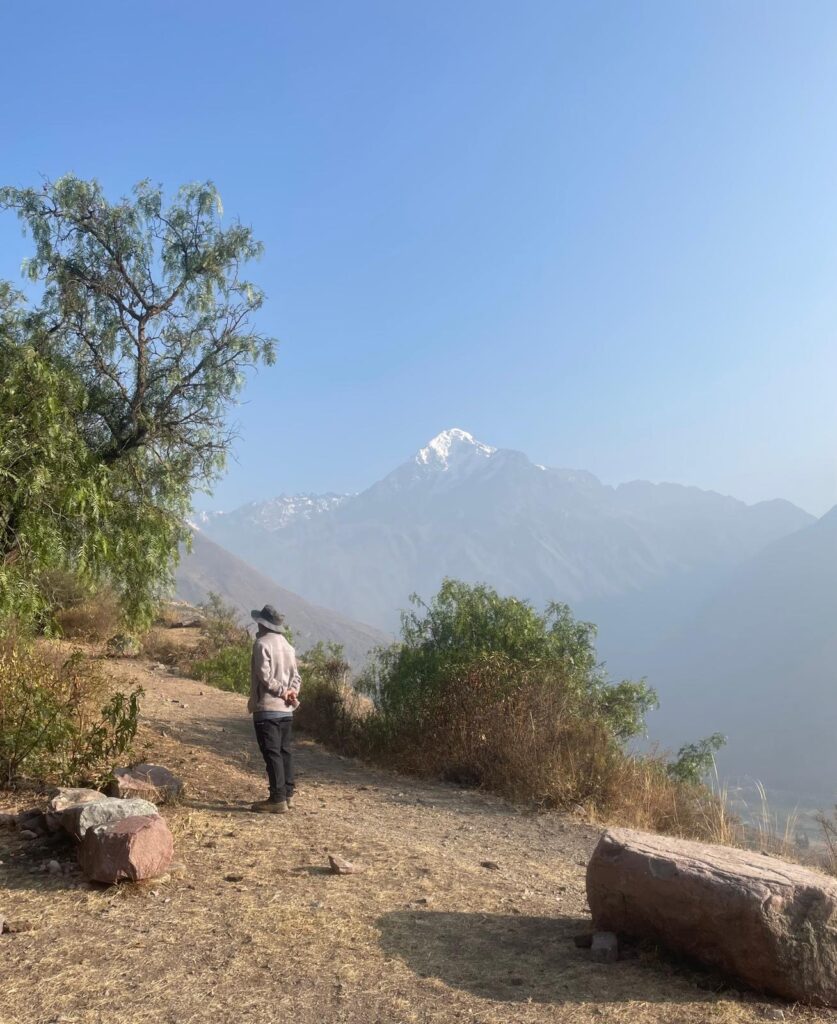
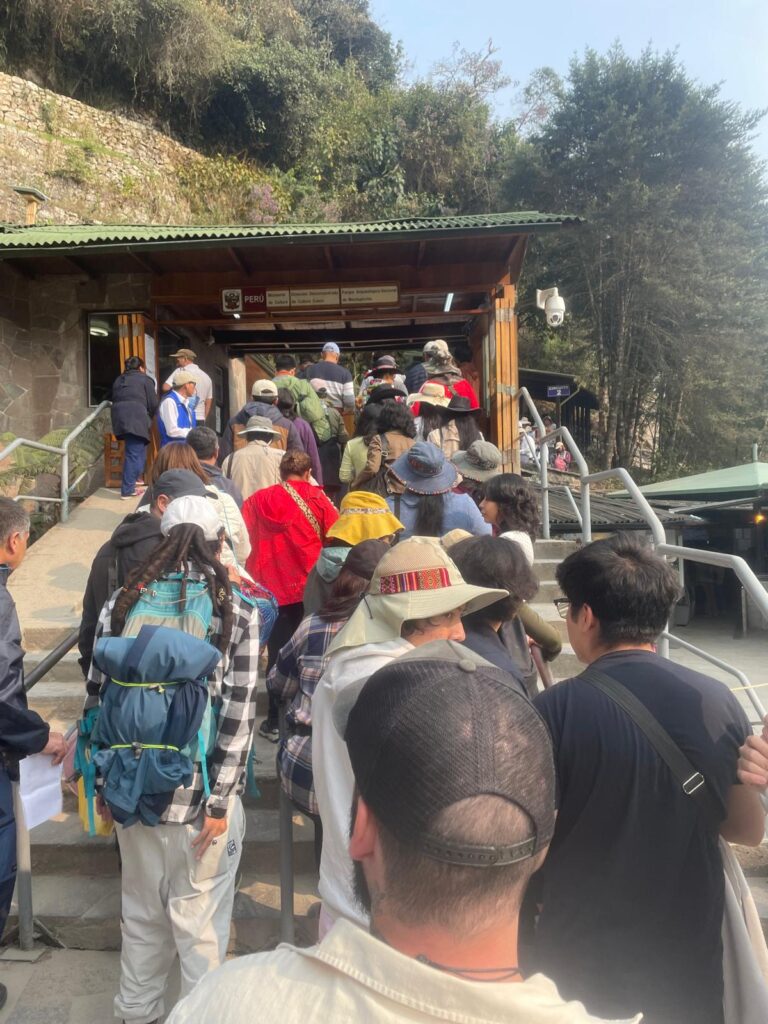
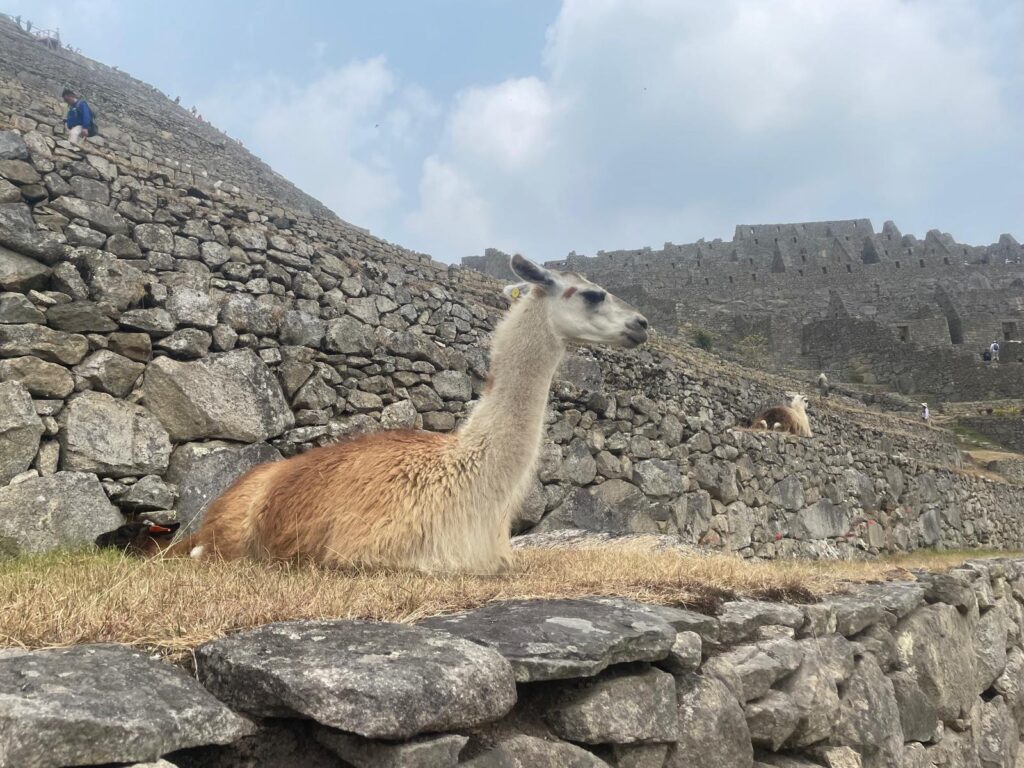
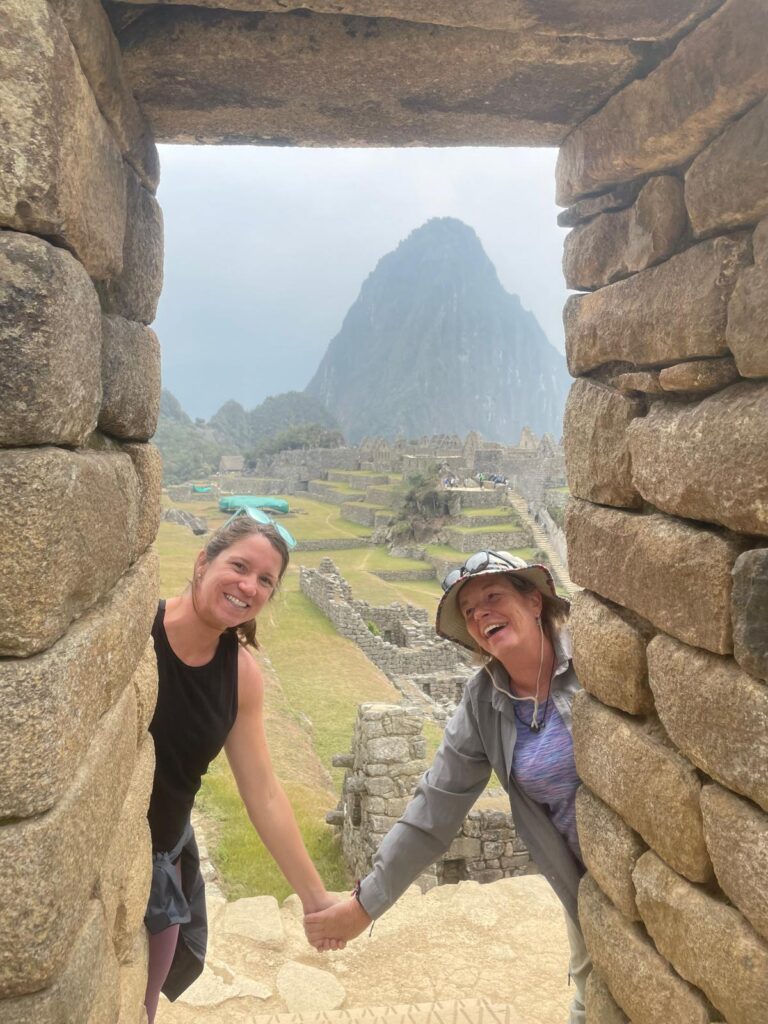
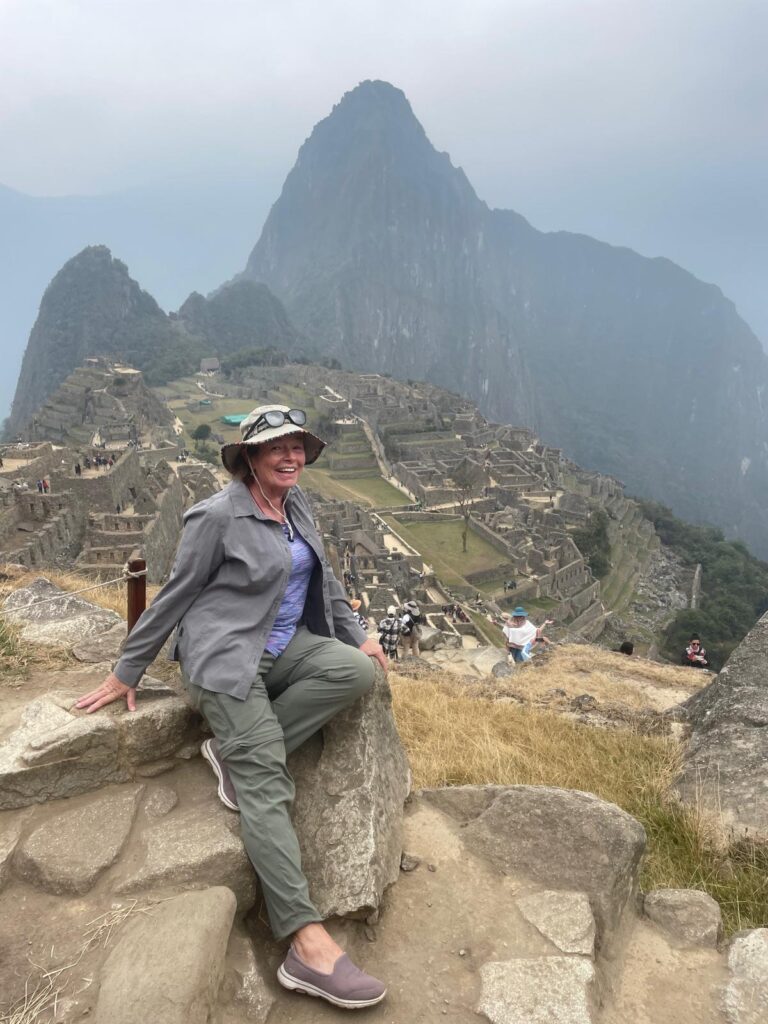
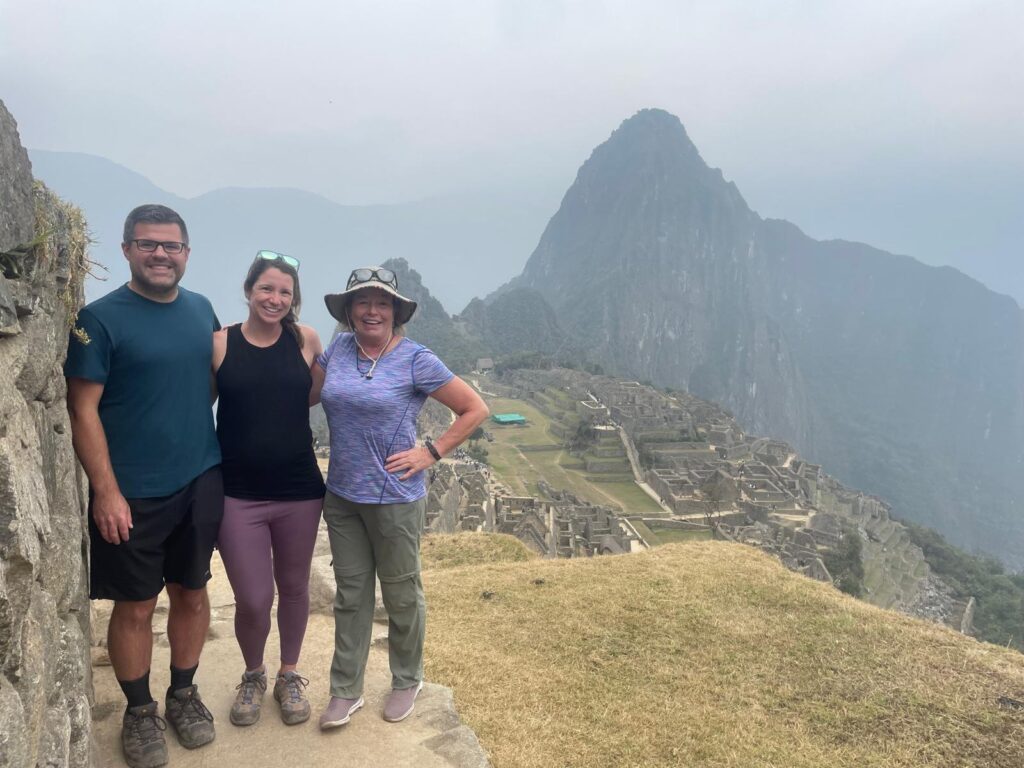
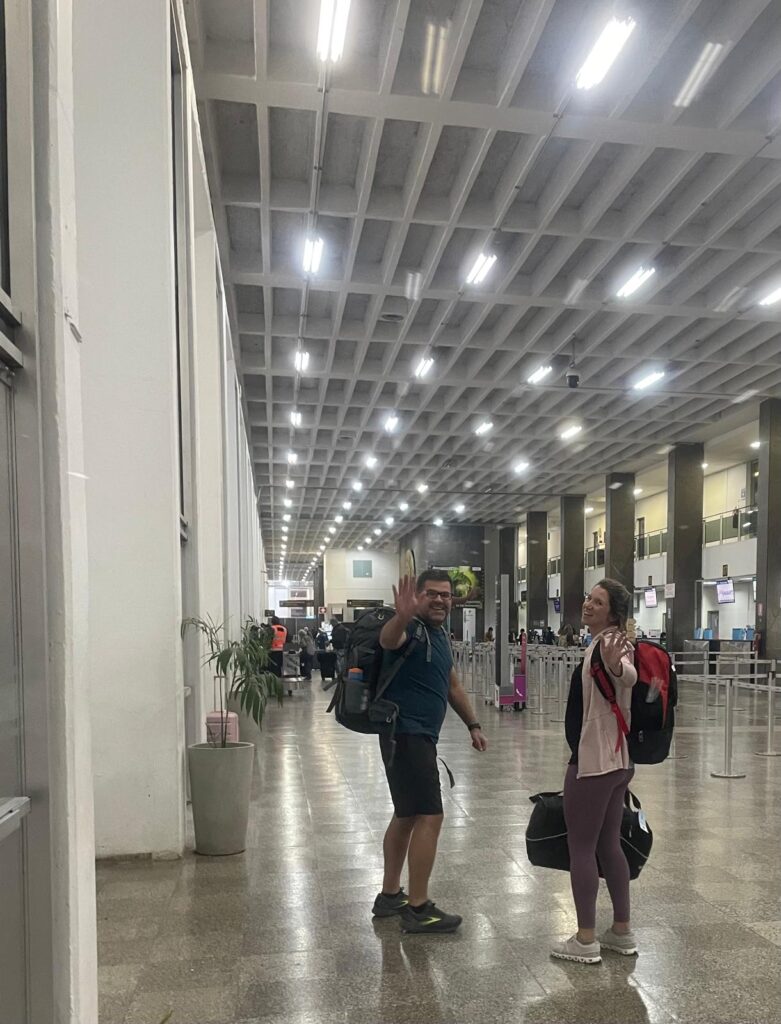
After Gena and Alex left, I had a relatively low-key weekend. I was absolutely exhausted from the long hikes and traveling via train, bus and car. I needed a few days in the same place to rest and recover, so I did just that. I noticed that I had several bites on my legs and hands, which I assumed were from Machu Picchu. I wore long sleeves, pants, a hat, and sprayed any exposed skin. I didn’t feel any bites during the day, but by the last night, I was super itchy and swollen. The bugs I saw at Machu PIcchu were little, but I’m guessing they were mosquitos. It was the first time in Peru that I’d been bitten. Given the number of bites and the swelling, I decided to take my Malaria meds as a precaution with some ibuprofen for the swelling, even though the risk was low. Better safe than sorry! Over the weekend, I was able to catch up with a few people. It felt like a pretty typical weekend! I called into my beach association’s meeting to learn about upcoming plans for next year, had a zoom call with my neighbor and dear friend, Marsha, and had a phone call with Corrine. Outside of catching up with loved ones, I focused on my upcoming plans for Bolivia, Chile and Argentina. I felt a sense of accomplishment getting all of my necessary visa documents printed on my own at a local print shop. I passed the place on my way to and from my hostel everyday, so I figured I might as well give it a shot. I paid .50 sole per each color page, sent via WhatsApp. I loved seeing an old print set machine in action! While I was waiting, I got to watch the printer craftsman run off documents and set up a layout. It was so cool! Of course, I also spent some time walking around the city and enjoying the events in the main plaza de Armas. Thankfully, restaurants stay open all afternoon in Peru, not like in Spain where establishments close for siesta. On Sunday, I found a new spot that had an open balcony seat and enjoyed a nice Cobb salad while people-watching. On the way back, I found myself right in the middle of some sort of parade and celebration. It was centered around a church, so I wandered in and found that it was the fest for the Virgen Natividad. I love that Peruvians take every opportunity to celebrate life and join in festivities!
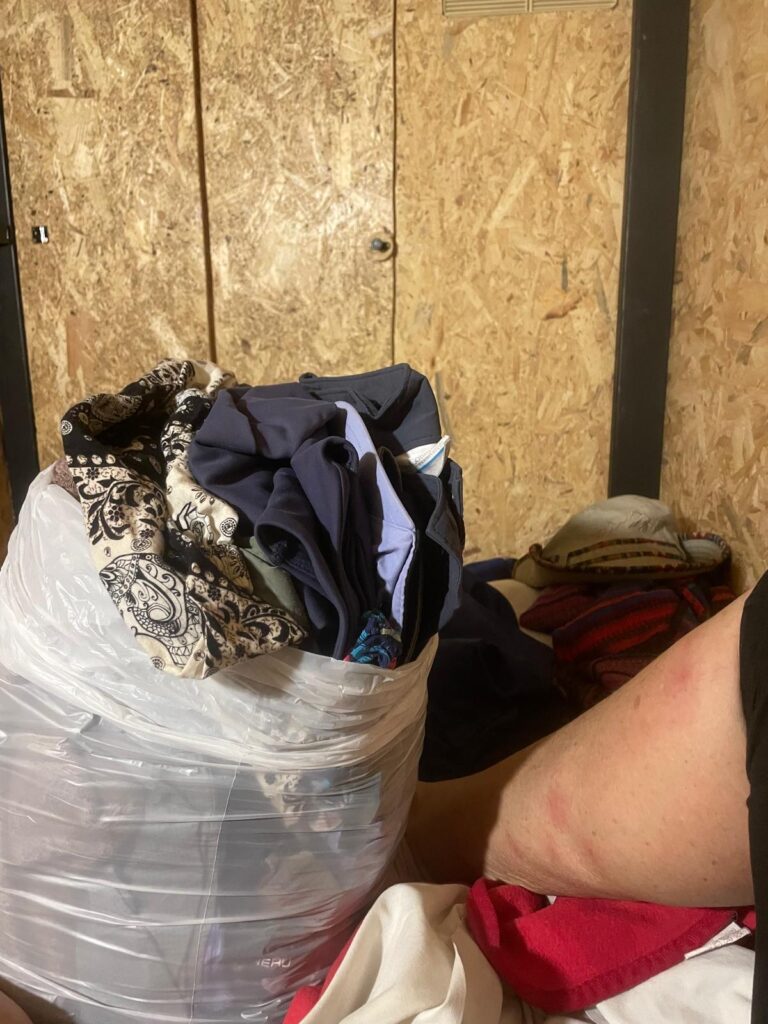
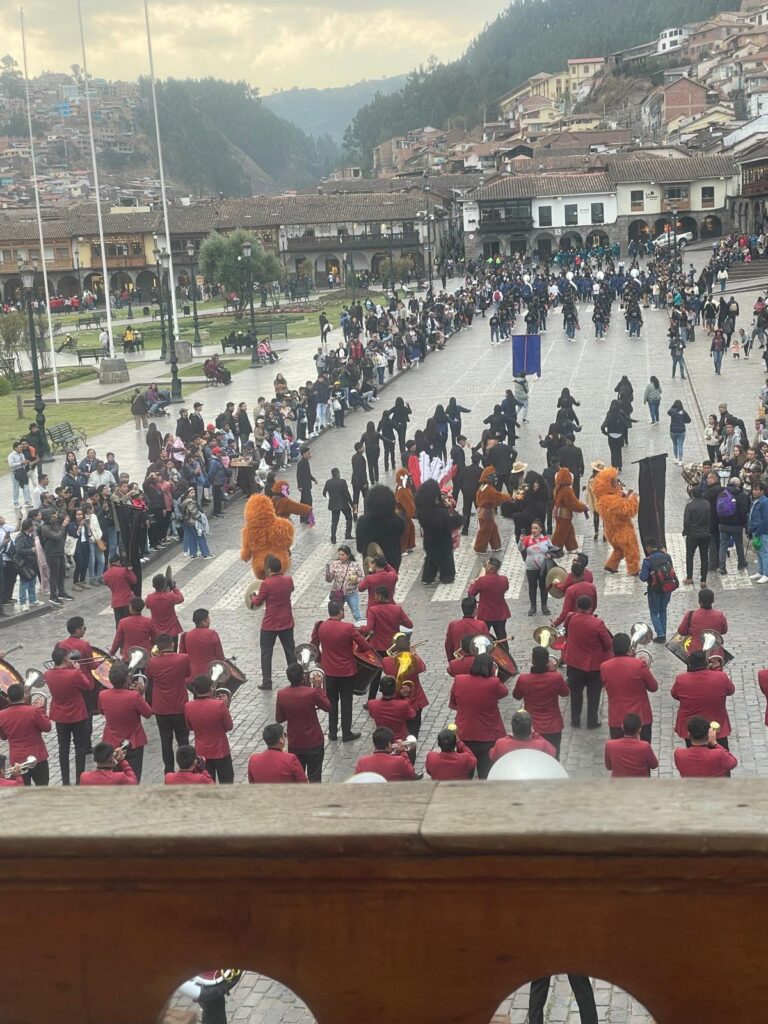
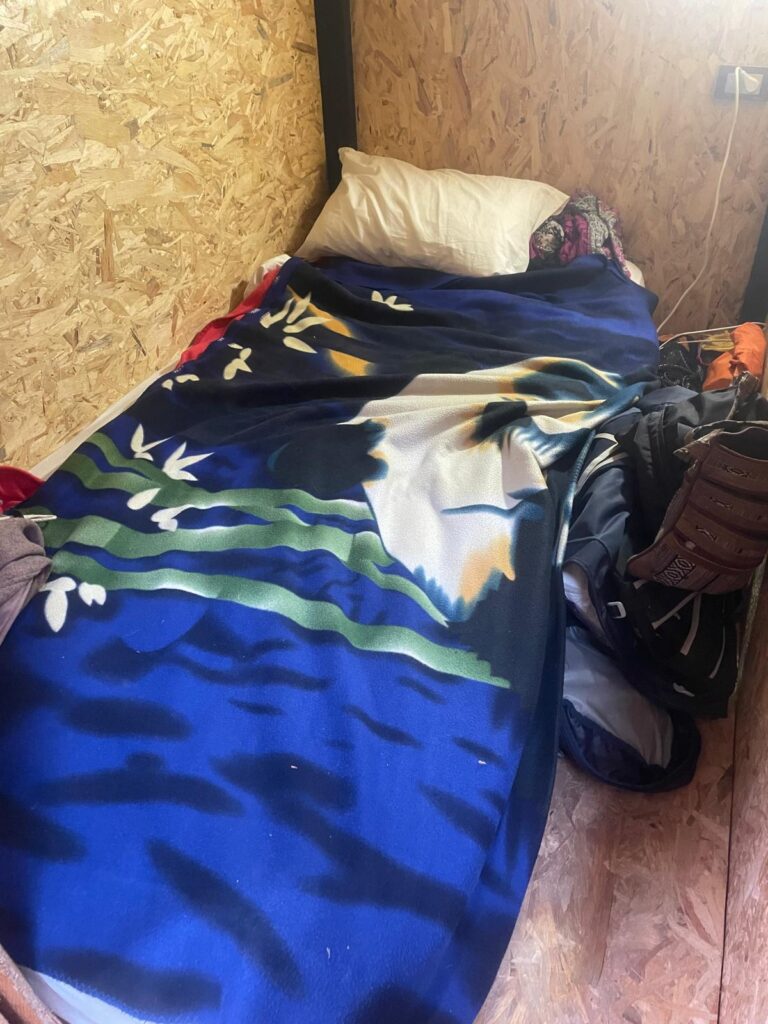
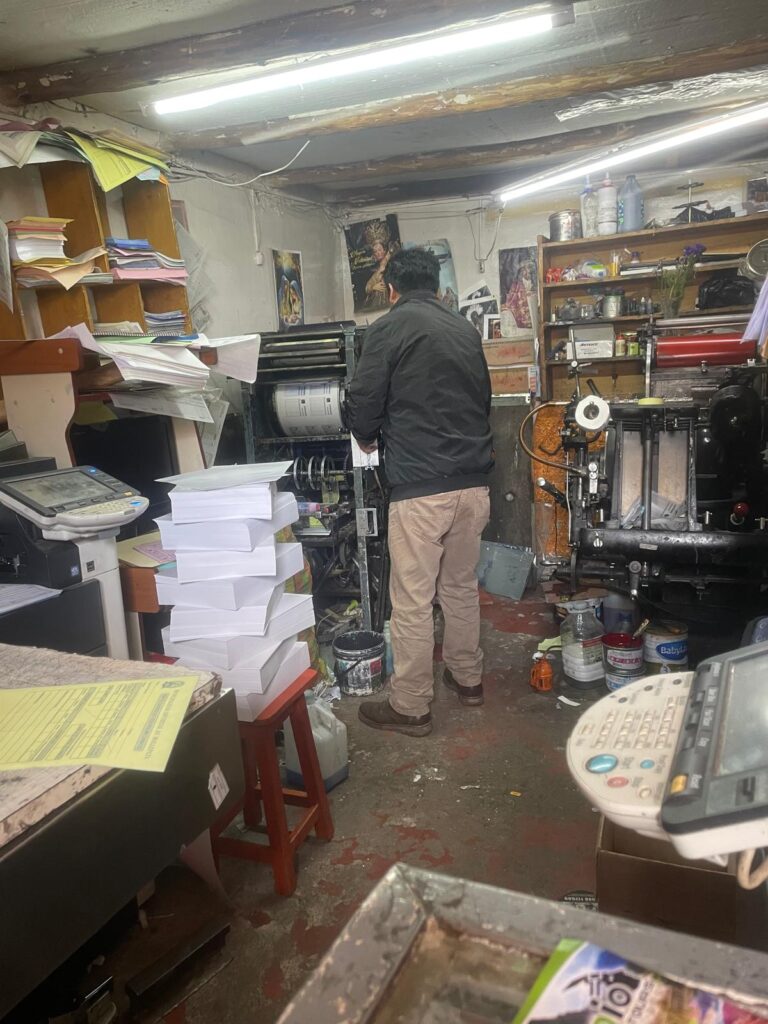
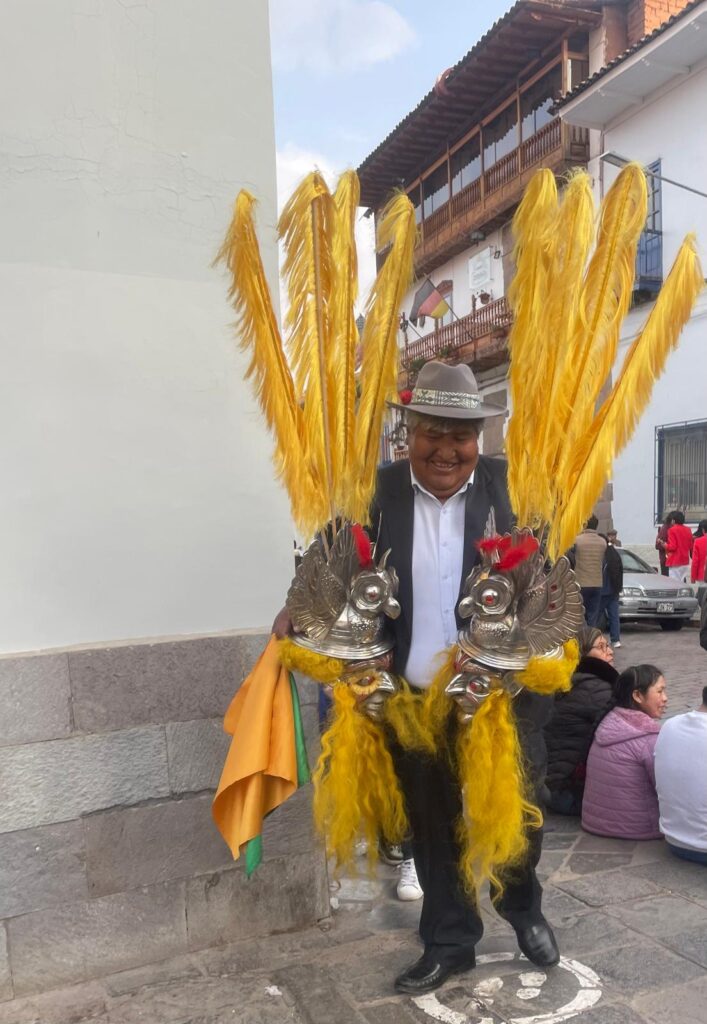
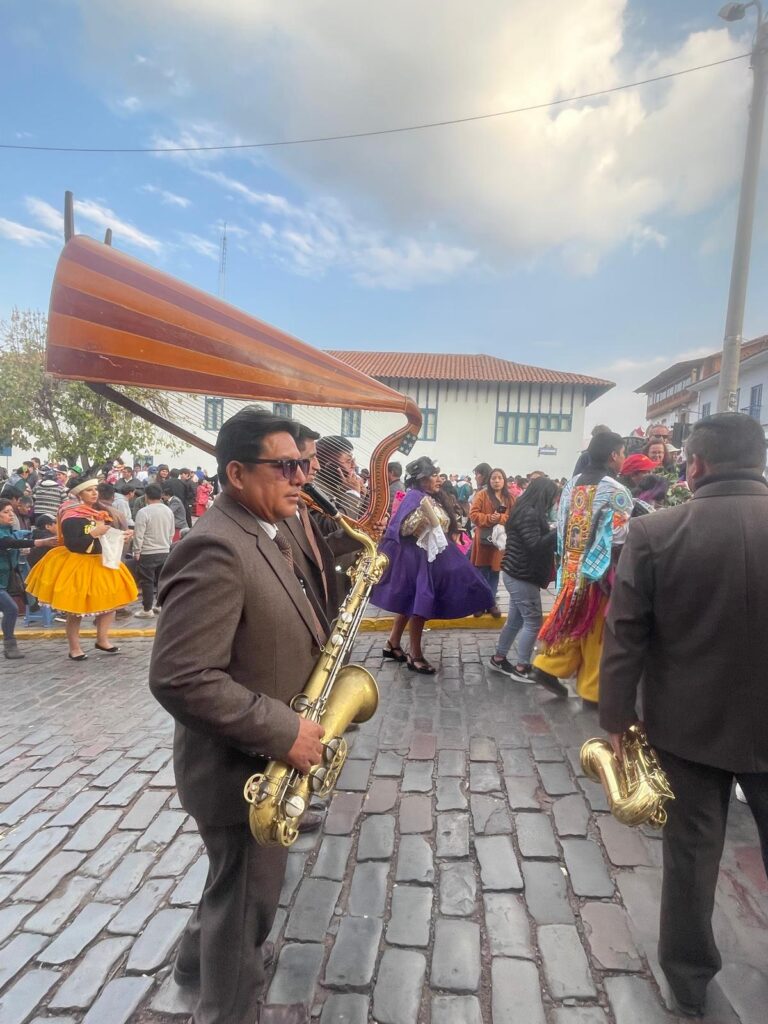
Traveling around the world doesn’t come without obstacles, as you are well aware by now if you’ve been following the blog for any period of time. On Monday, I embarked on a journey to obtain my Visa. I ate breakfast at my hostel then took an Uber to the Bolivia Embassy at 8 a.m. I didn’t have the completed application, but the website said that the form would be at the embassy. Once I got there, however, the clerk said that I needed to start the application online and get a registration number. Upwards and onwards! I found a Starbucks WiFi to complete the form, but the attachment file sizes were too big so it didn’t go through. I walked back to the embassy and found a concierge office across the street from it. There, they provide the necessary online application for 45 soles, so I had to find an ATM to get them. Once I had the compensation, I went back to the concierge, got the required forms, and paid the fee. Once I had all of my documents in order, I went back to the embassy and the application was accepted. By this time, it was 11 a.m. I had $160 in cash to pay, as the website said cash was accepted, but the embassy clerk didn’t take USD cash. The clerk told me to go to BCP bank, pay with cash to the embassy account, and then bring him the voucher. So, I did just that! Once I got back to the embassy, the clerk told me to return at 3:00 p.m. to pick up my passport with the visa stamp. I spent my downtime walking around the mall, got some lunch, and picked up some toiletries. It was still only 1:00, so I found a nail salon close to the embassy and got my nails done to kill some time. I was finished by 2:00 p.m., so I mulled around a bit and then made my way back to the embassy. Thankfully, everything was in order, and I was able to pick up my passport with a visa stamp, which is good for 10 years! Win! I definitely wasn’t expecting for the visa to take all day, but I was relieved once it was all done. After a hectic morning turned afternoon, I decided to walk back to the hostel, get some dinner in, and hunker down for the night.
Real life also doesn’t magically get placed on hold while traveling around the world. On Tuesday, I had to take care of some “normal life” business. I needed to submit a life change form to Medicare, which led to a struggle with Turbo Tax and getting the necessary information needed. Eventually, I got it done, but it was a pain to have to deal with, especially so far away from home. After handling some necessary tasks, I set my sights on spending my last day in Cusco enjoying the time I had left. I spent some time reflecting on my time in Peru, starting with my volunteer work, Spanish lessons, and making new friends. Then I turned to the bus trip with Sonja, and finally, the epic hiking trek to Machu Picchu with Gena and Alex. Peru has such a varied landscape. From the urban grey city of Lima, to deserts, to jungles, to high mountains (including the ancient lost city of the Incas), I’ve come to feel at home in Peru, thanks to new friends and rich experiences. But, the next country calls, as I have two months to make my way to my final RTW destination in Buenos Aires. Using buses instead of flying means that I will get to see the landscapes and how people really live. It also means that the road is calling! I ended my time in Cusco by visiting the same cafe where I started and shared meals with friends. One last pastry and pot of tea or Orikanka Cafe! Thank you, Peru, for introducing me to South America! At 9:30 p.m., I boarded an overnight bus to Punto. And a new adventure began!
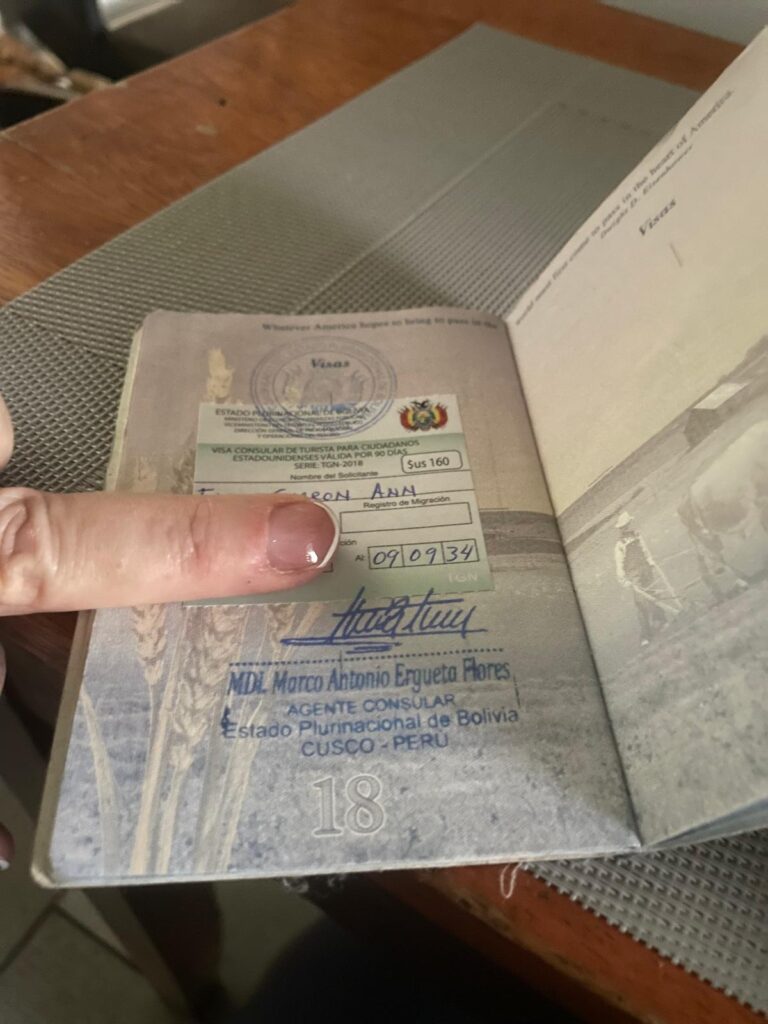
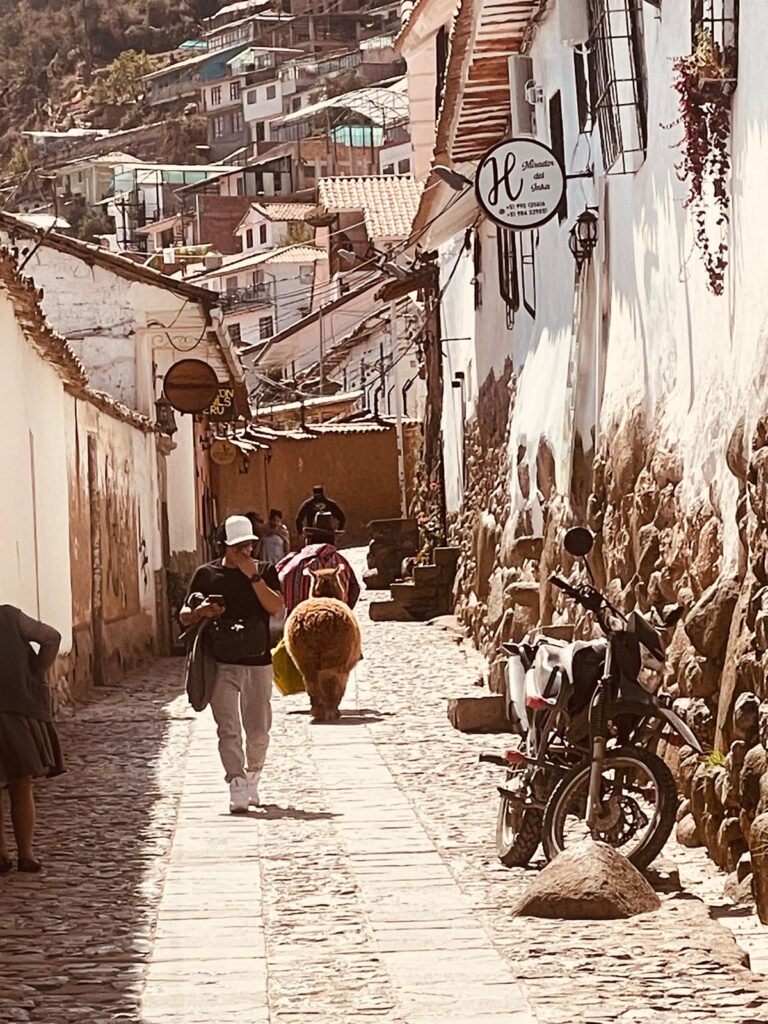
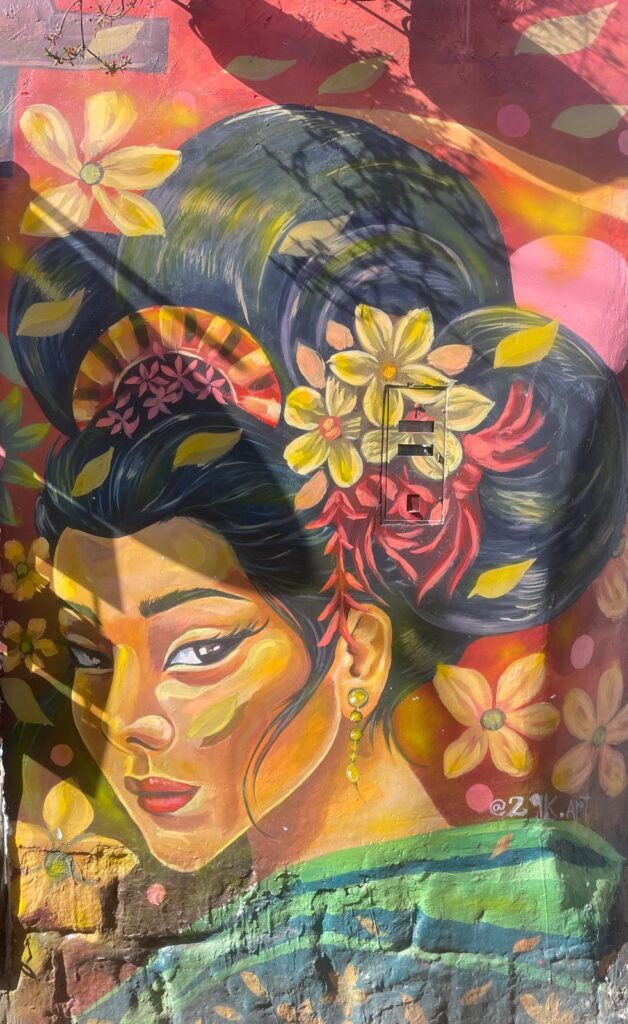
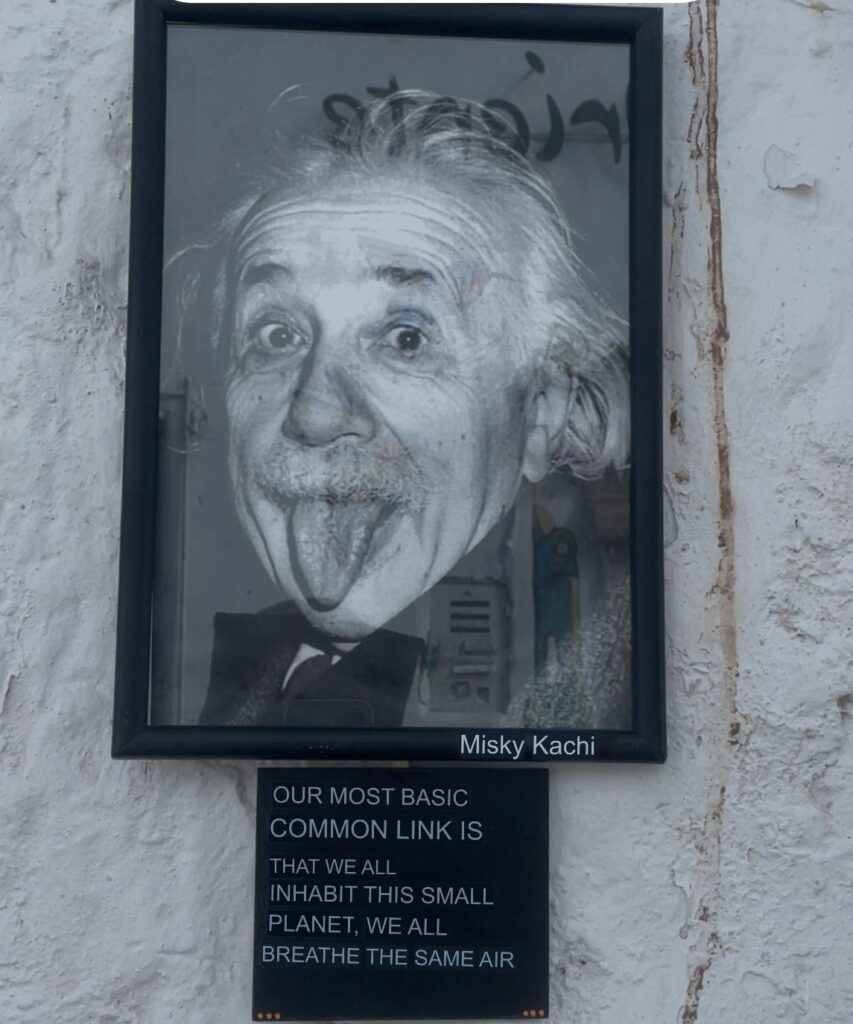
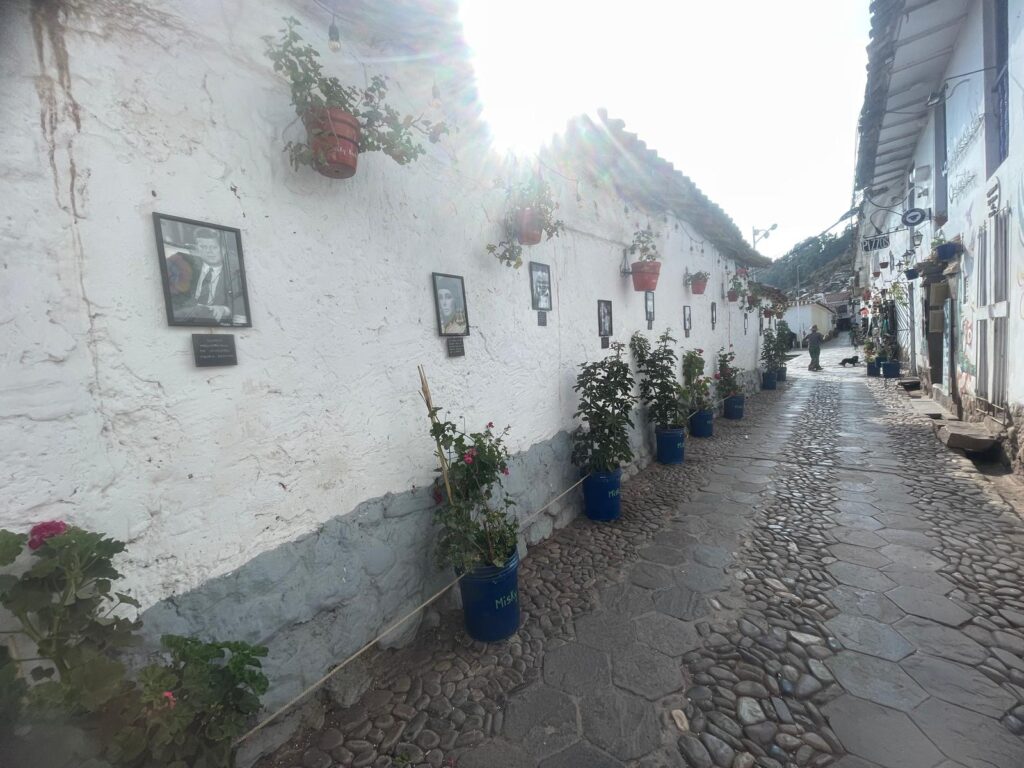
We rode the bus until 4:40 a.m., stopped for breakfast, then hit the road again at 8:00. At noon, we reached the border. Crossing the border was very interesting. We stopped at the Peru side to get our exit passport stamps. The Peru office was very official looking– the clerks wore uniforms and took our pictures from behind plexiglass partitions. Then, the Bolivia hop bus guide and about 20 of us travelers took our bags, left the bus, and walked across the border as the guide played the Rocky song on his phone. We then went to two offices, one that checked that our individual online form was properly filled out (via QR code) and then the passport immigration office. Both of the offices were a sharp contrast to the Peru side. The clerks were in their typical clothes, and the clerk who checked our QR code stood at the door and marked something on a paper as each person passed. The immigration officer, also in street clothes, barely looked at me. They confirmed my Visa page and then stamped my entry into Bolivia. Later, I looked online and confirmed that Bolivia is a much poorer country than Peru. GDP per capita, Bolivia is in 129th position versus Peru’s 49th. Culturally, though, the two countries are similar. Bolivia was once part of Peru, known as Alto (upper) Peru. I could already see a sharp contrast between the two countries– it’s all part of my journey, and road border crossing gives me more of a down to earth experience, which I appreciate. I was happy that I did my research beforehand and went to the embassy to secure my Visa. Even though it was a bit of a headache to do beforehand, it really paid off and made my border crossing a breeze!
By the time Thursday rolled around, I wasn’t feeling great. I was very tired, and felt “off” (to include some stomach issues and loss of appetite). I wasn’t sure if it was the overnight bus, the toll of travel in general, or if I was coming down with something, but even after a good night’s sleep in a bed, I was still exhausted. I didn’t have the energy to explore or do much of anything. Perhaps it was still the altitude, even though everything I read said I should have been over it at that point. Either way, I took diamox in the morning to see if that would help at all, and spent the afternoon resting on a park bench at the lake’s shore with some stray dogs resting nearby. It was a glorious, sunny day with a slight breeze in a very sleepy, laid back town. Though it could have been worse, I found myself hoping my energy would perk up quickly. If not, I reasoned, I’d have to shorten my stay and head to lower altitude. After my reprieve, I went back to my hotel to pick up my bags, and headed back to the bus. A few hours into our bus ride, the guide said that we would be getting off of the bus and taking a short ferry ride (15 minutes) over the strait of Tiquina. The bus would take another barge , and meet us on the other side. They said it was okay to leave our luggage on the bus, that it would be safe. When we got to the ferry it was getting dark, so we followed our guide onto two small boats. The docks looked a little run down to my standards, but I didn’t have much of a choice. I saw two small outboard engines on our boat, which held about 16 people. The waves were going up and down– not white caps, but not calm at night, either. I was a little nervous. I made sure to get up at the bow where I saw a few life jackets. The person running the boat– I wouldn’t quite call him a captain– used the small outboard to get away from the dock. Then, it took about four tries to get the bigger outboard running (pull start). It looked no bigger than 50 hp; the boat being about 25 feet long. It was a stressful ride to say the least, and I was glad to see the opposite shore line lights getting closer. During a few points along the way, I saw water coming into the stern. I was really glad when I saw the docks come into view! He banged against them a few times, but we arrived. I was happy to step ashore, even if it was on an old wooden dock with loose planks. We had to wait about twenty minutes for our bus to meet us, but we were on solid ground!
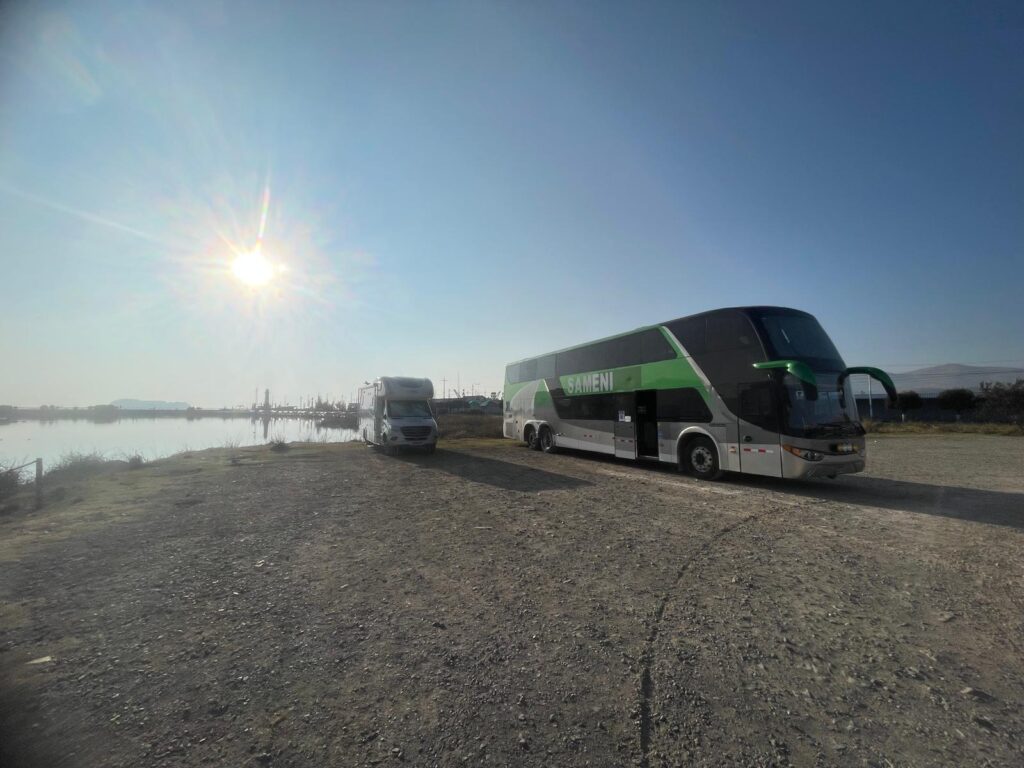
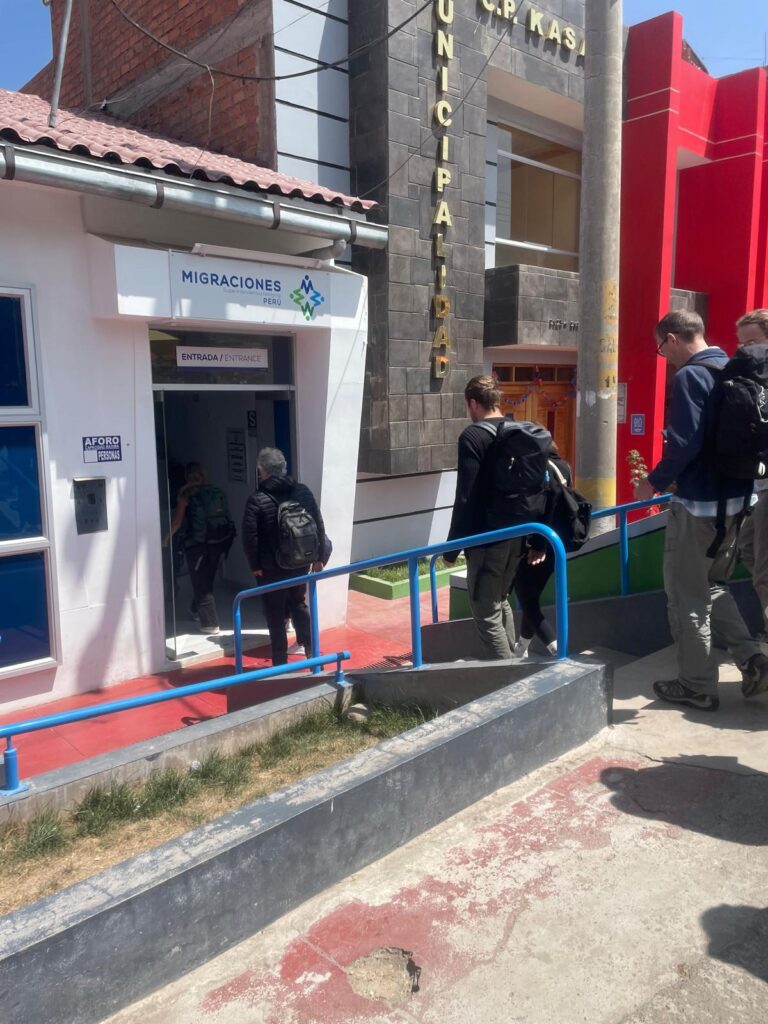
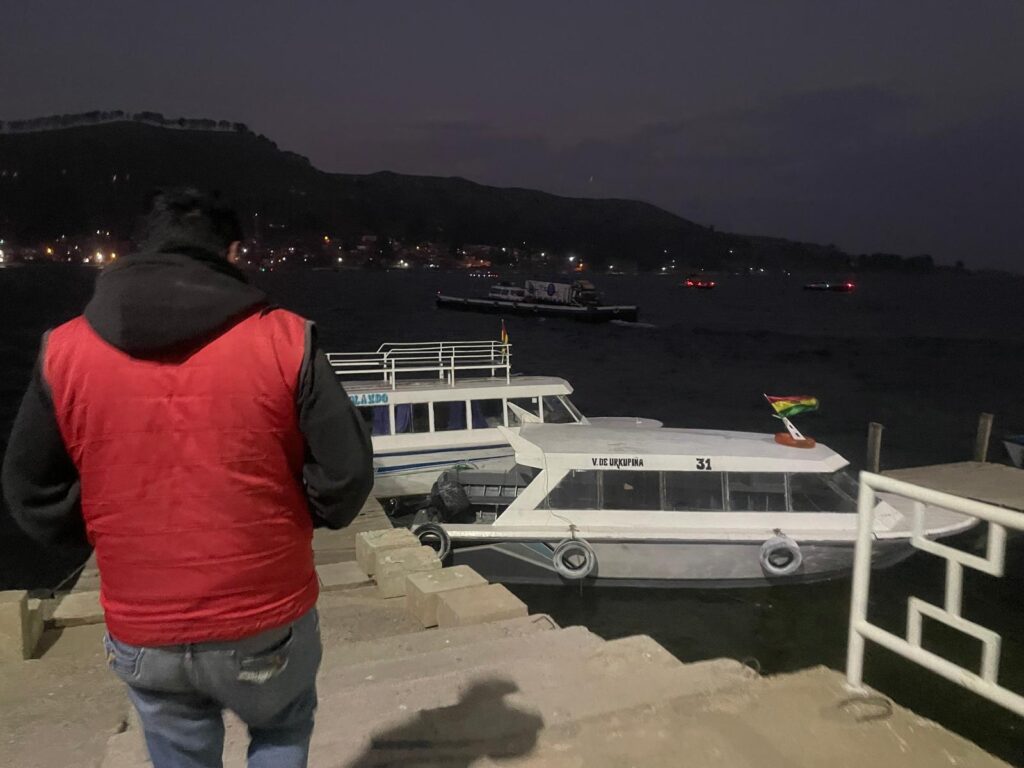
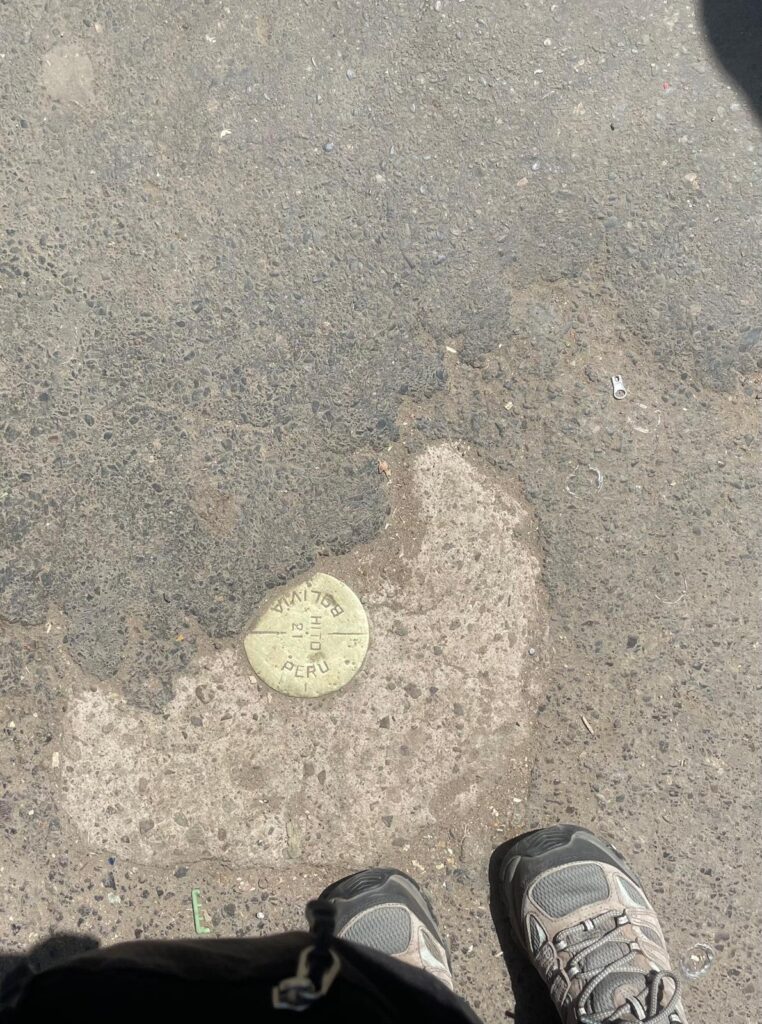
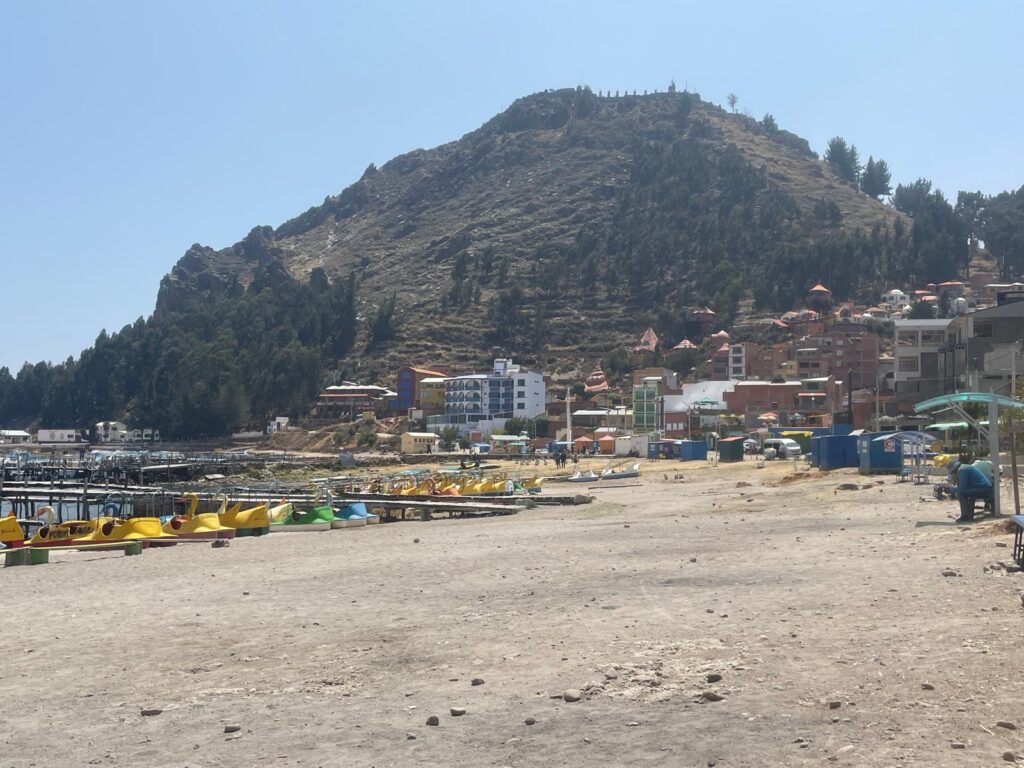
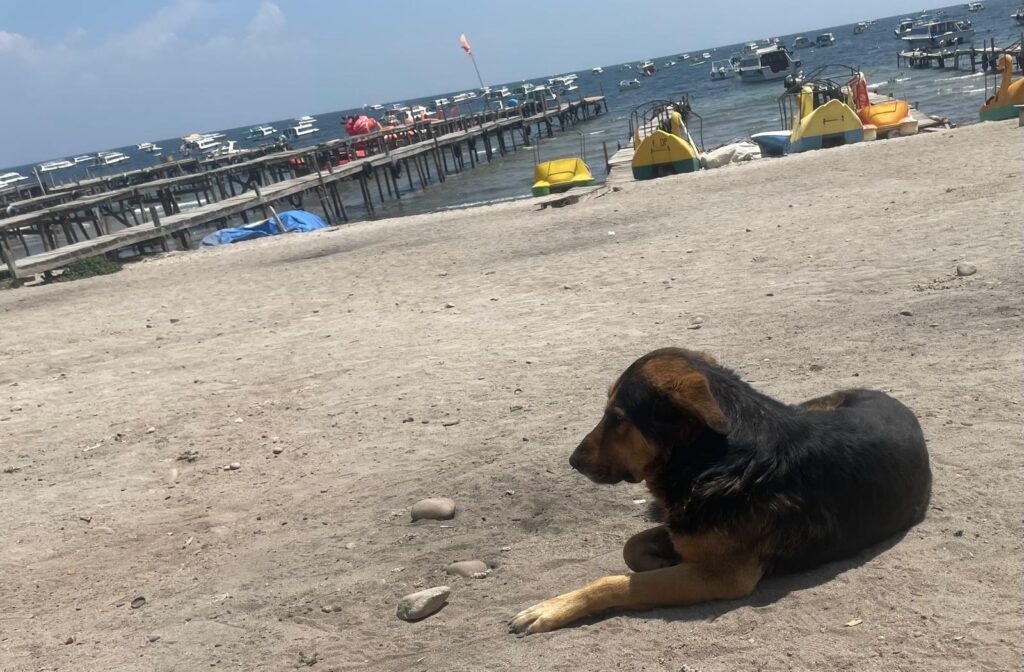
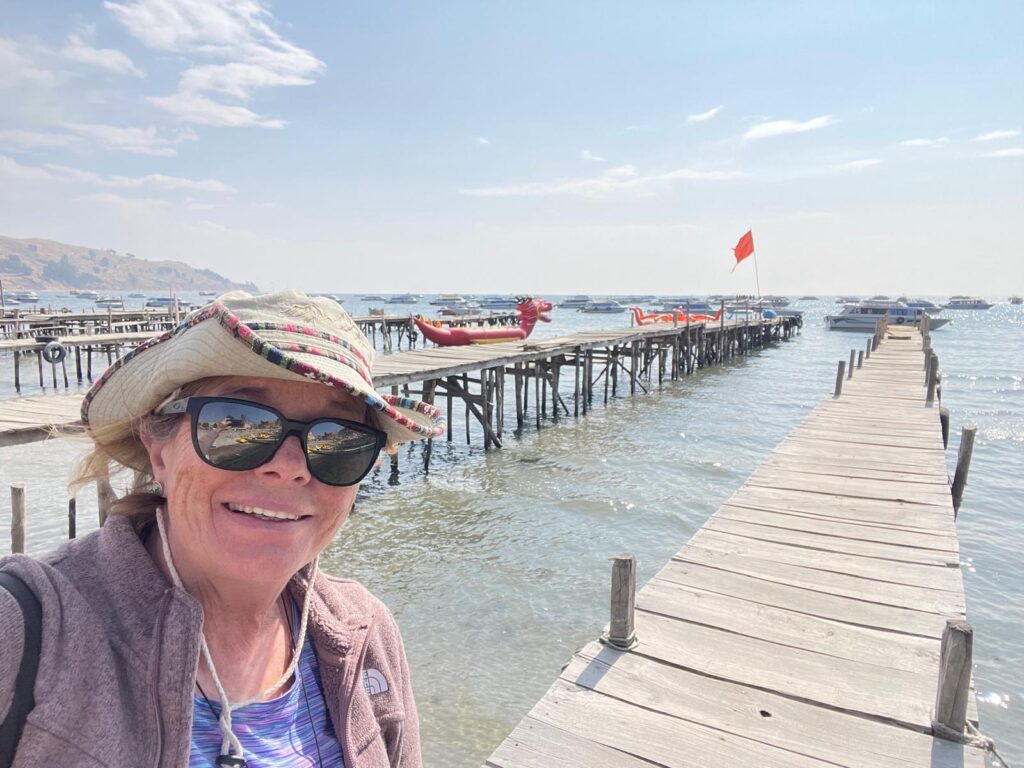
On Friday, I settled into La Paz, Bolivia. As I typically do in a new area, I booked a tour! I had such a wonderful time with Fernando, the tour guide. One of our stops was at the witches market. He said that Bolivians are dualists– they practice Catholicism AND their indigenous rituals, which was really interesting. At the San Francisco basilica, there are carvings of Jesus and pachamama (Mother Earth god). He also said that when the Spanish came here, if there was anything that they didn’t understand, it was labeled as witchcraft. Hence, the witches market. One of the most macabre and noteworthy items at these stores are the llama fetuses on display. These are used as an offering when someone is building a house or at the mines in the Highlands. Fernando also mentioned that human sacrifice still happens, for the same purpose as the llama fetuses. Giving something back to the earth (pachamama) ensures that the house will stand and the miners are safe. All of us Westerners in the group were shocked! I actually felt a little lightheaded and sat down on the store’s step. He went on to explain that some of the homeless people have disappeared– suspected to have gotten drunk and buried alive! What?! One of the Swiss tourists spoke up, but our guide remained calm, understanding it was difficult to hear. He was more westernized than his parents and grandparents generations, but also had to respect that these traditions have been practiced for thousands of years. He felt it was a part of learning about Bolivian culture. Later on, I found an article that seemed to back up what he was saying, so it wasn’t just tourist shock or tour talk. It was a somber moment on the tour. Once we regained (some) our composure, we continued along all of the tourist shops with the usual trinkets, then took the cable car ride. The mood lightened afterwards, but every time I saw what appeared to be a homeless person, I was reminded of Fernando’s explanation.
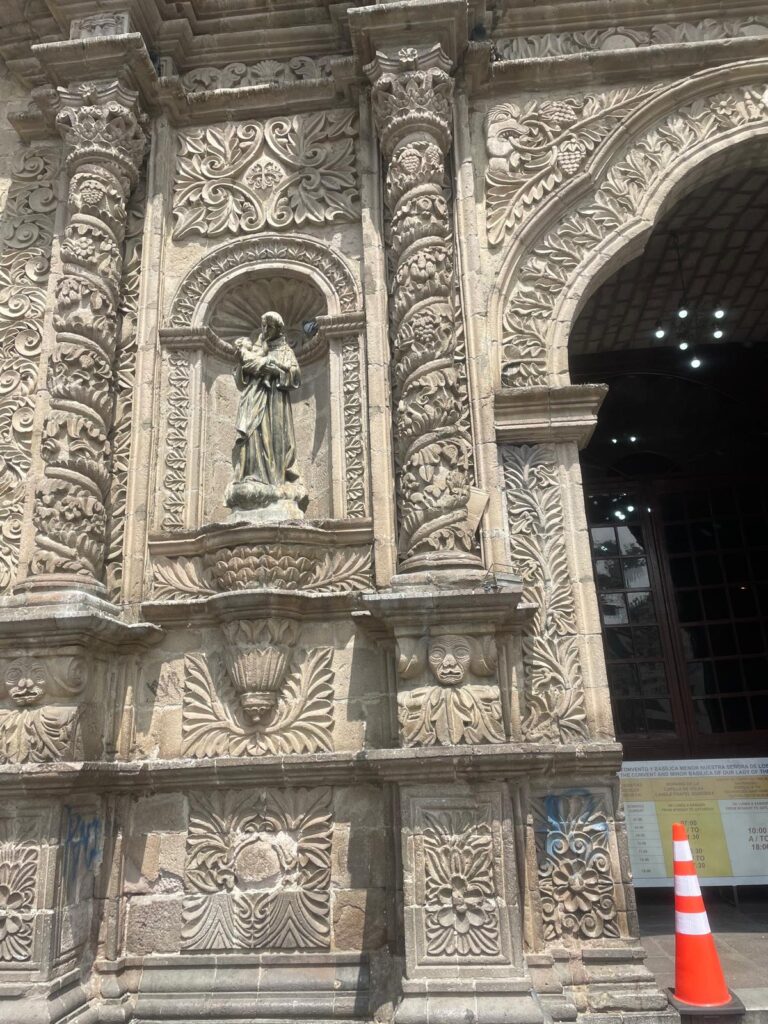
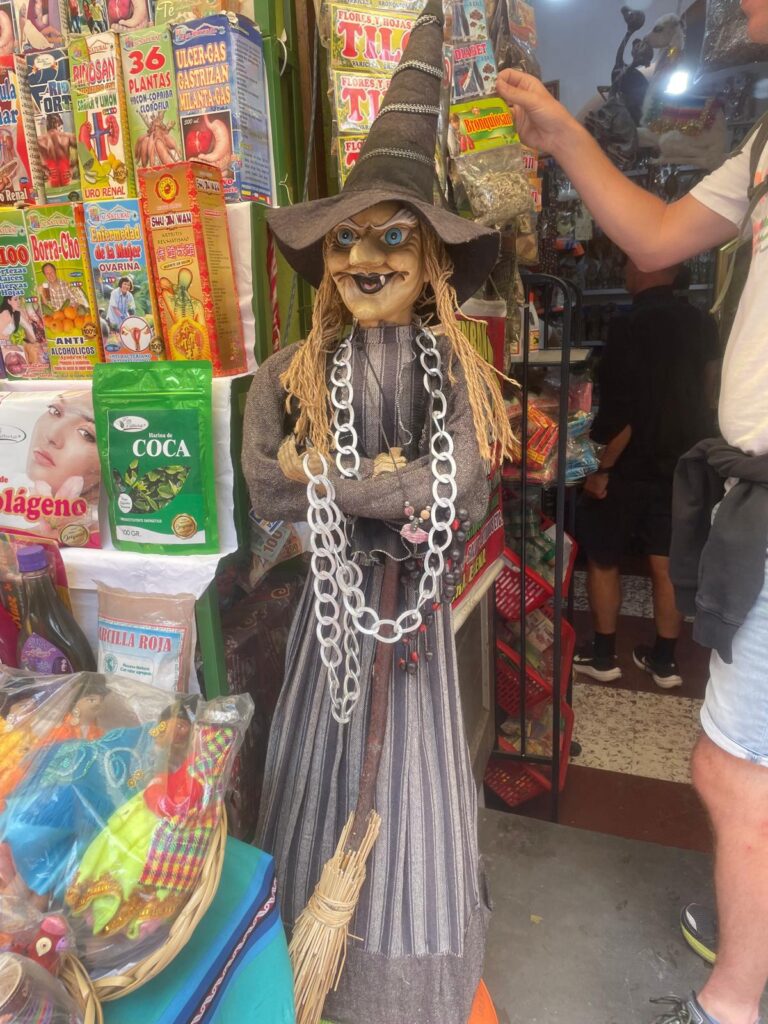
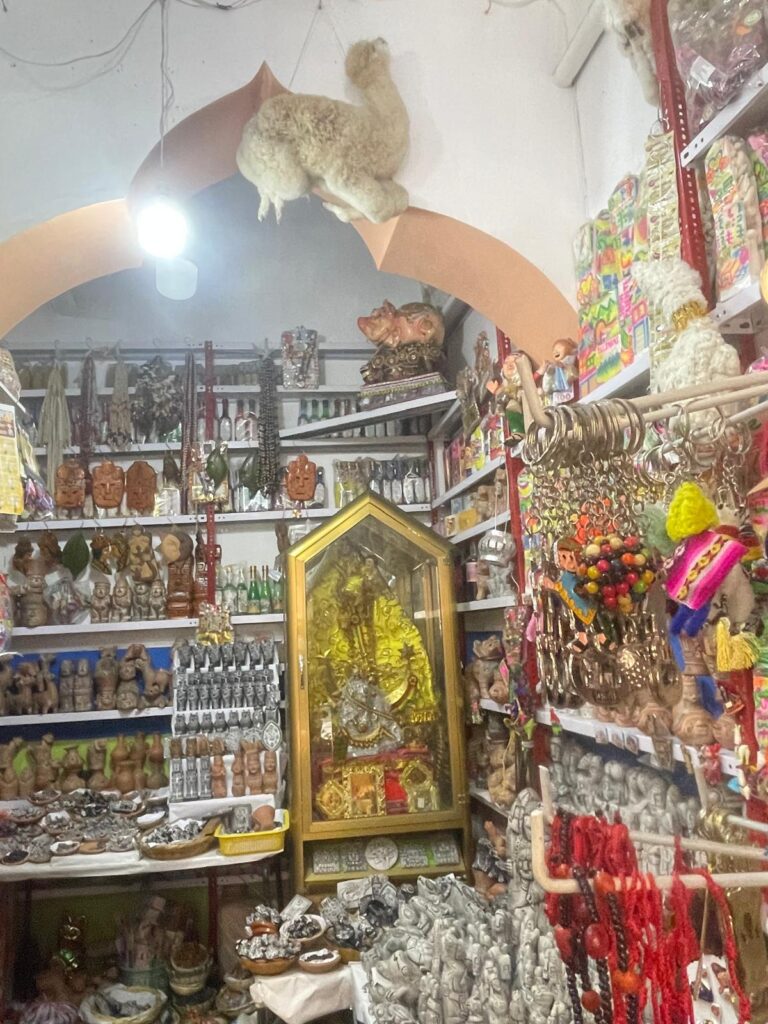
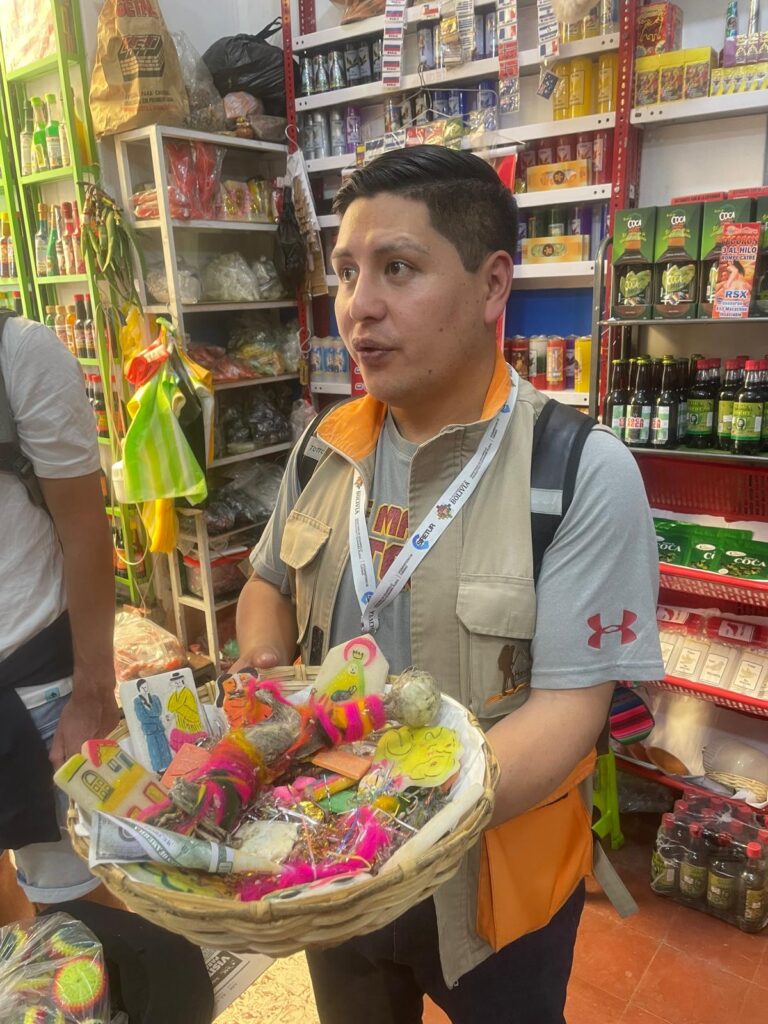
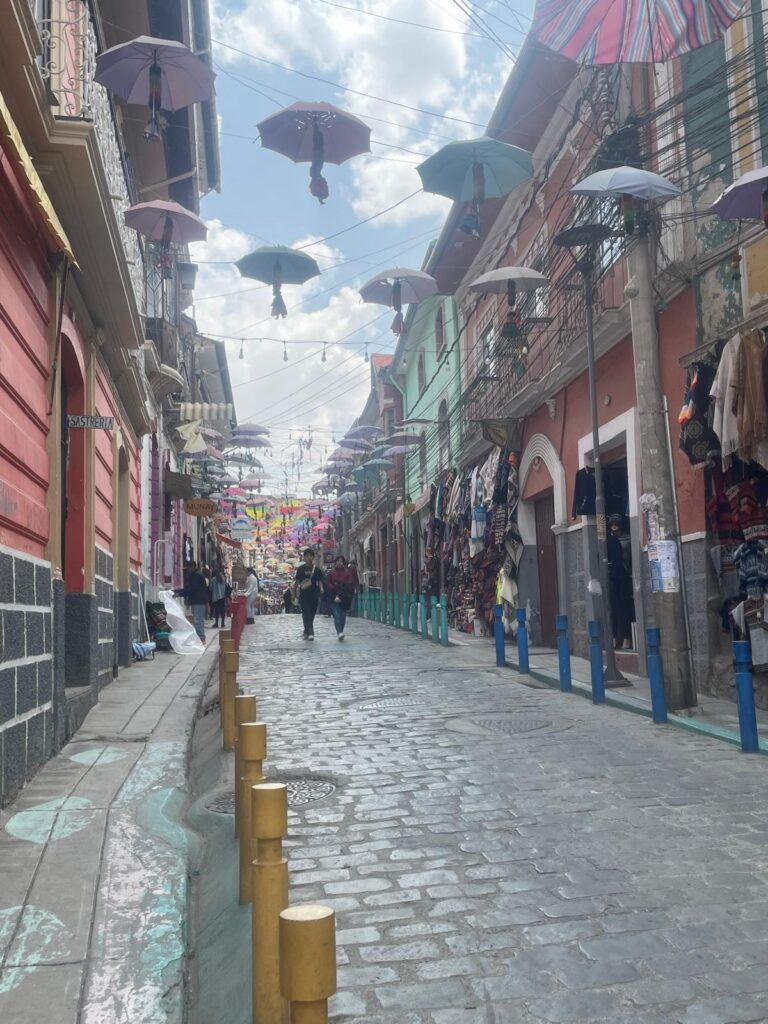
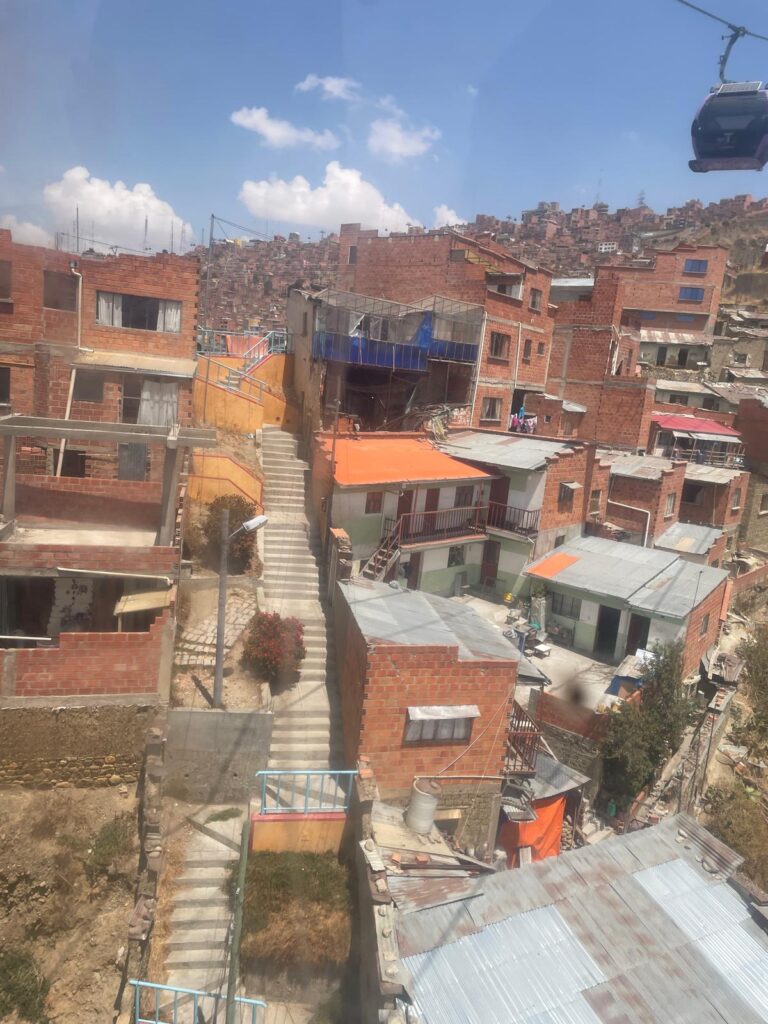
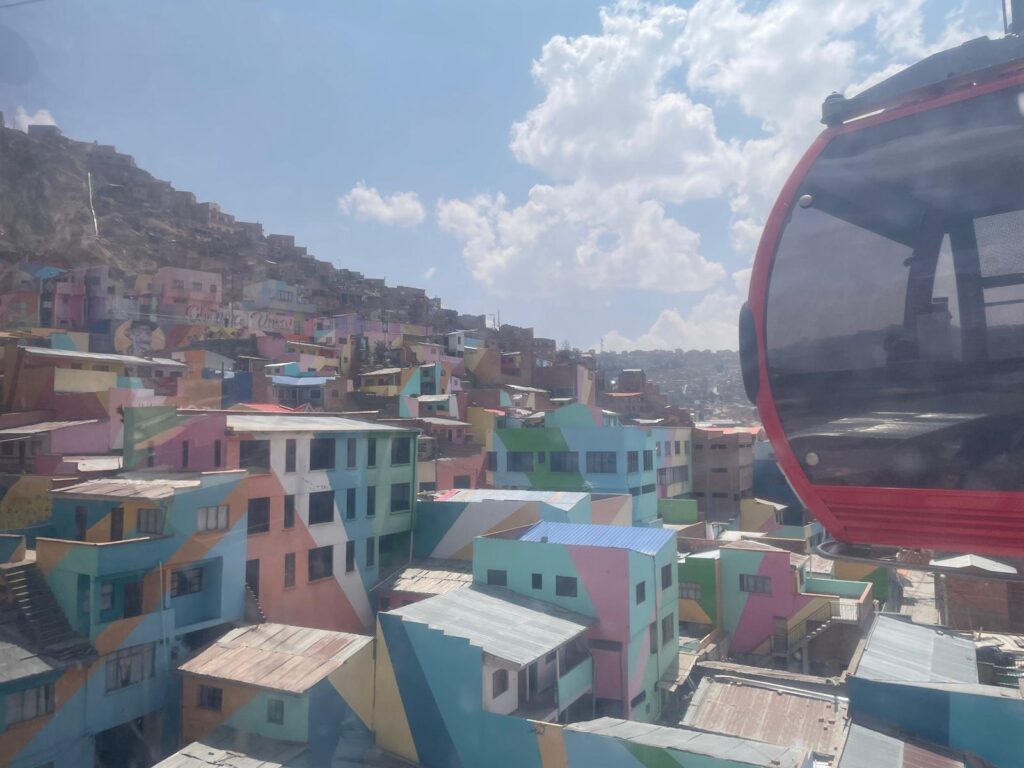
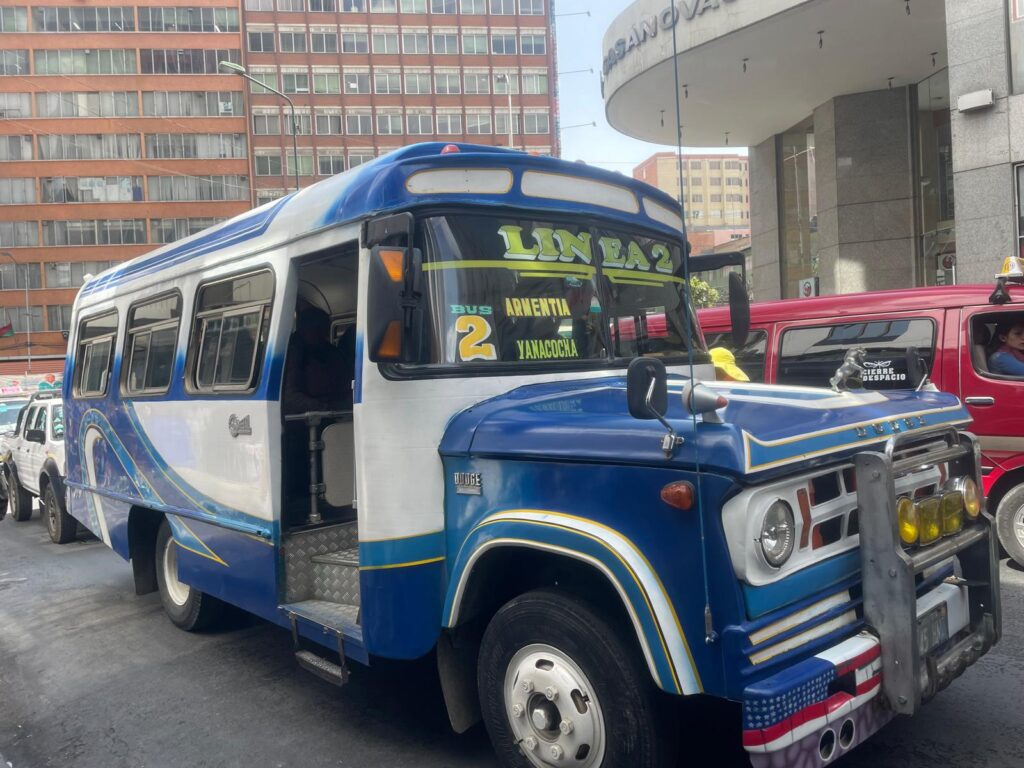
I still wasn’t feeling 100% when Saturday rolled around, but I woke up, showered, and organized all of my belongings. When I went to check my important papers and cash fund, my heart sank– I was missing hundreds of USD! Not only was I not feeling 100% physically, but emotionally, I took a solid hit. It was a hard day all around! I felt so violated and began questioning all of my actions. All of the “should haves”. Being a fairly trusting person, it was such a blow to realize that I had been robbed. I’ve been traveling for an entire year, and nothing like that had ever happened. I had read that robbery is a “watch out” in South America, but I didn’t think it would happen to me. It really tainted my view of Bolivia. I know it’s a very poor country and I’m a white privileged tourist, but that didn’t make me feel any better. I was so much more on guard while walking around, and will continue to be. I had no desire to do any further exploring or see anymore attractions. It was a stressful day. I asked the Bolivia hop tour guide if I could cancel my bike ride planned for the following day, but it was too late. I was getting nervous about the safety of it, mountain biking down very steep gradients. She told me that there’s a support vehicle at all times and I could use that if I chose not to ride. I planned on meeting the guide the following morning and trust my intuition as I ride along. If at any point I don’t feel good about it, I’ll just hop into the support vehicle. After realizing my cash was missing, Bolivia didn’t feel as wonderful as I was hoping it would. I tried to not let it sour my experience, but I definitely allowed it to be a clear reminder about travel safety!
In the early morning, I sent out a message to my cornerstone sisters from my parish in NJ asking for a pep talk. Within an hour, we were on a video call! My spirits were so lifted. Just seeing familiar faces and hearing their words of encouragement were so helpful. I’m so grateful to have lifelong friends who are there for me when I need support! Ultimately, I decided not to do the Death Road bike ride. I still wasn’t feeling well, and after watching a few recent videos of the ride, I made my decision. I was really hoping to do an activity to highlight my World Bicycle Relief fundraiser, but I wasn’t willing to do so, potentially, at my peril. It’s difficult, sometimes, to make these decisions. Was I nervous and needing to get out of my comfort zone? Or, was I making the best decision for my own well-being? One of the benefits of getting older is feeling like there’s nothing left to prove to anyone. I can take it or leave it. Instead, I went to mass and fed my spiritual soul. As the day went on, I felt good about my decision, resting in the fact that I had to do what was best for me. Two random things reinforced my decision: At mass, the person who was giving out communion wafers in the line I got into was a woman, which was a pleasant surprise. Then, after mass, I wandered around the alcoves looking at the saints and statues. I passed a guy who was wearing a “Hershey’s Chocolate World” sweatshirt, a sign from my childhood! Later that evening, I treated myself to popcorn and a movie. I watched The Instigators with Matt Damon, based in Boston, which was a nice slice of home.
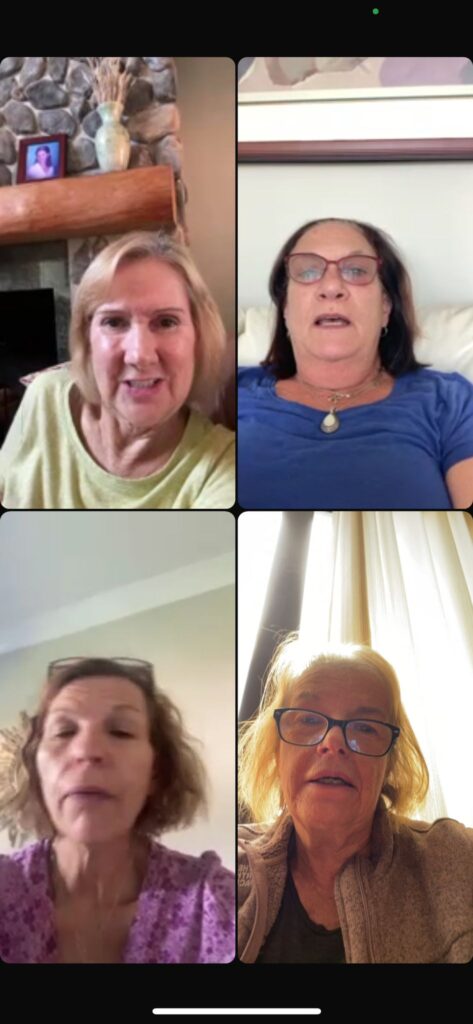
Things happen in life, and getting my emergency money stolen was unfortunate. Ultimately, it created the opportunity to reflect on how I respond to unfortunate circumstances that pop up along the way. I can choose to dwell in the pit of the event, or I can choose to move forward in a healthy and self-caring way. I chose the latter. I reached out for support, did things that fed my heart and body, and decided to focus my energy on taking care of myself. I am thankful that I have the tools to respond in a positive way. I am thankful that I have enough funds to continue my trip and replenish my emergency fund, and that the event didn’t crush me. I am thankful that I have become more comfortable with turning to plan B, C, or even D. I am thankful that I am on this incredible journey, and that I have the wisdom to care for me. I am thankful. Until next time, dear friends: stay safe, stay healthy, and always remember to make space for what brings you joy.
“Travel opens your heart,
broadens your mind,
and fills your life
with stories to tell.”
-Paula Bendfeldt
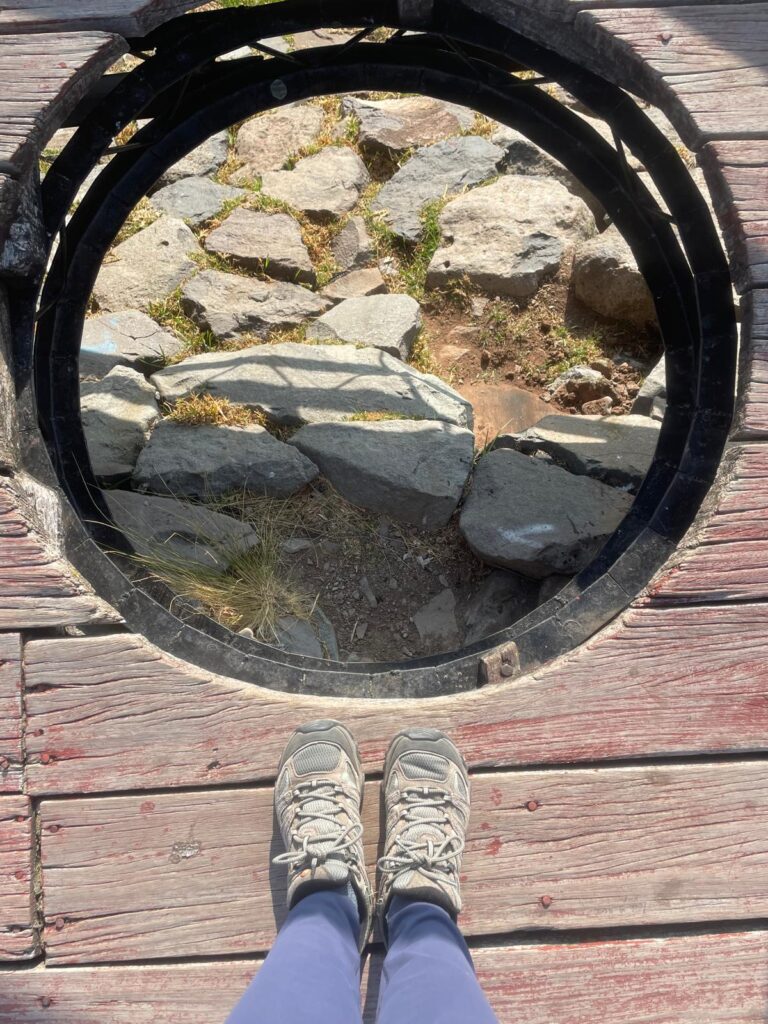
Thanks to Gena and Alex, I have a plethora of photos and videos to commemorate our time together! Below, please enjoy exploring our adventures through their lenses!
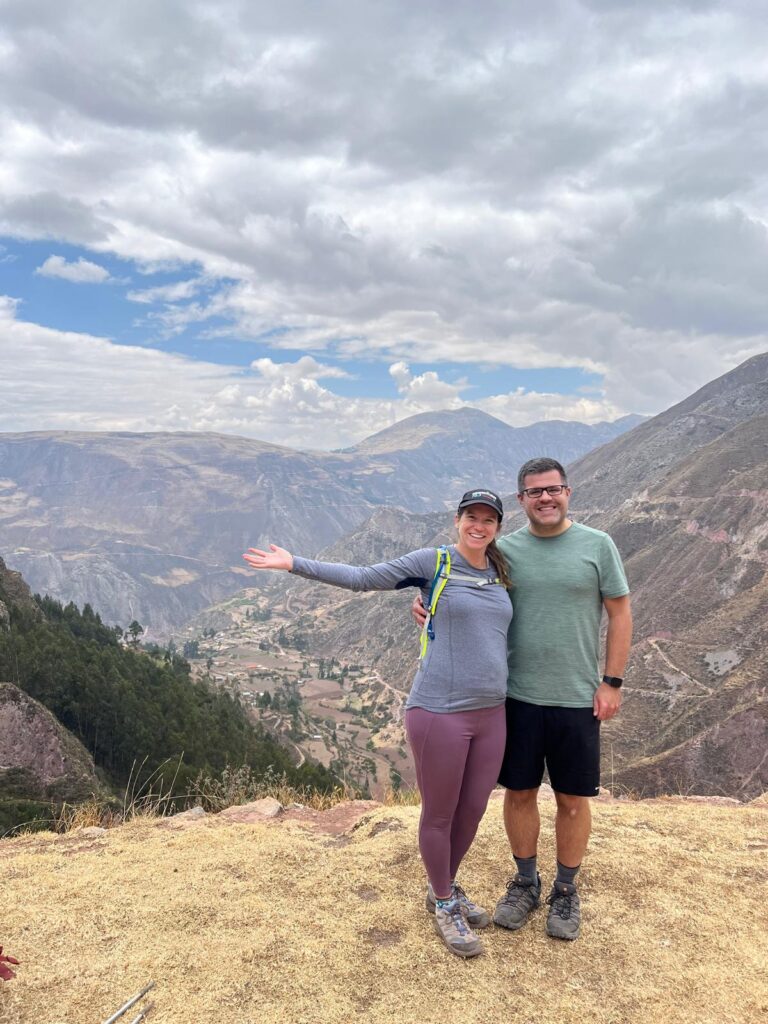
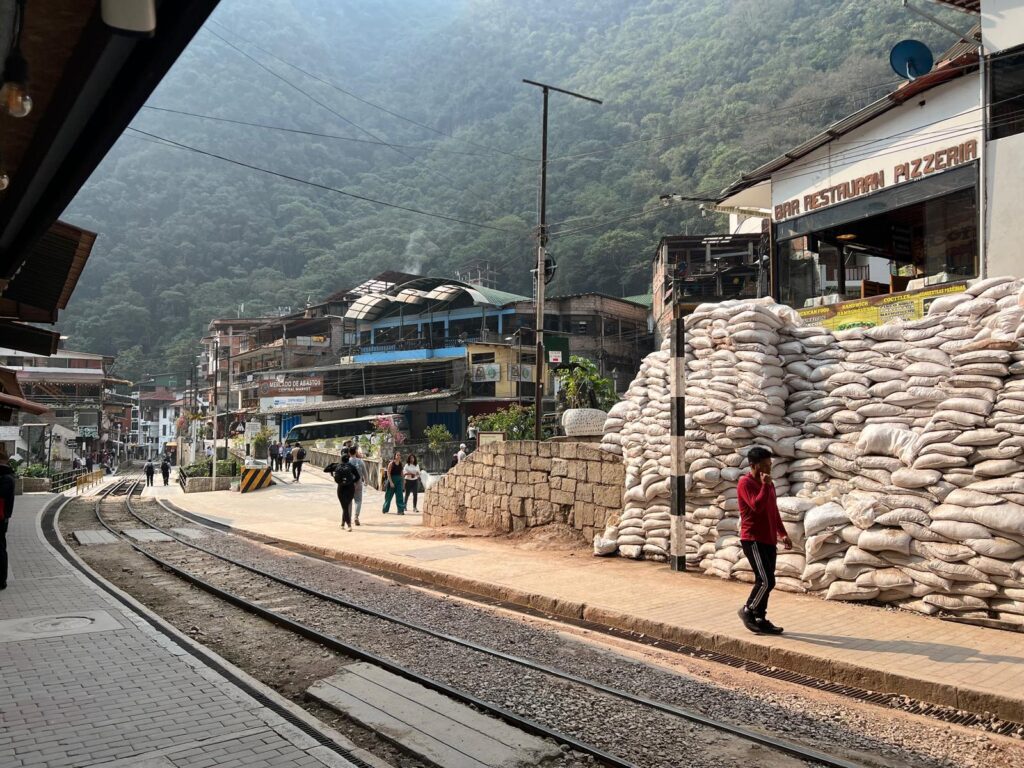
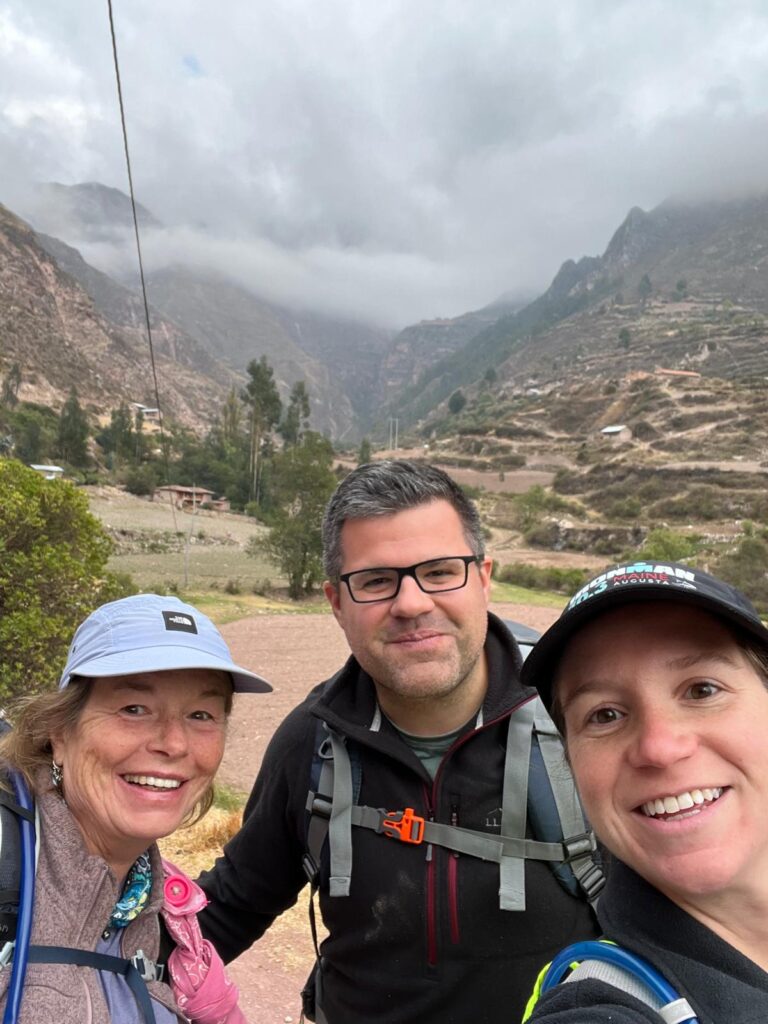
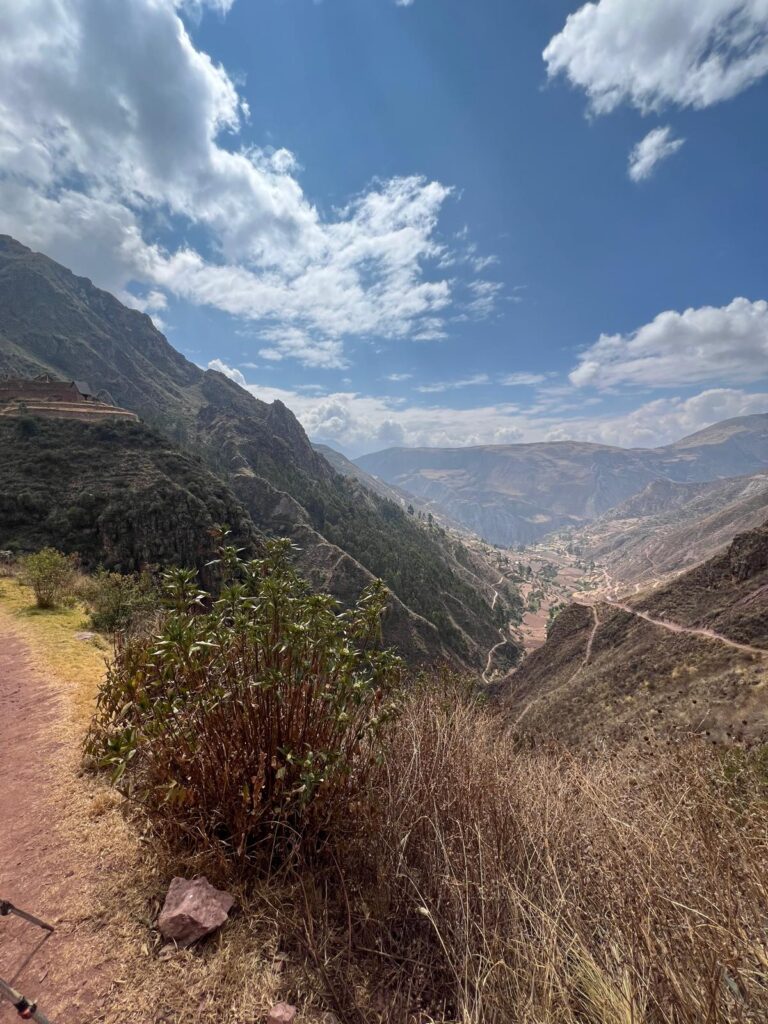
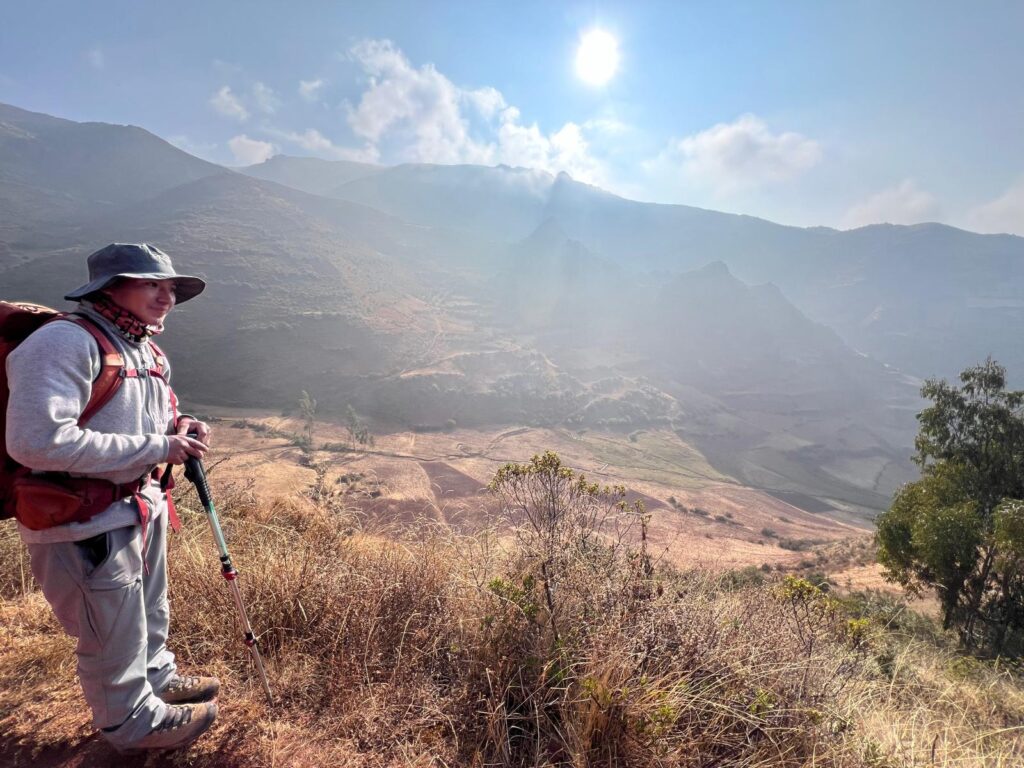
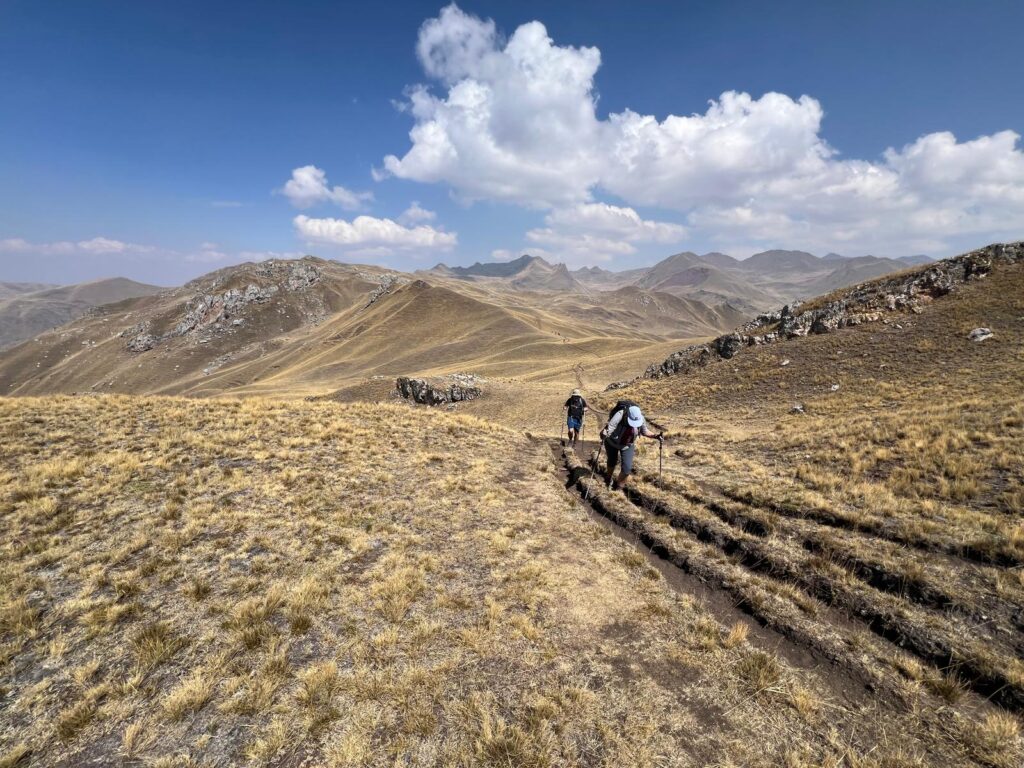
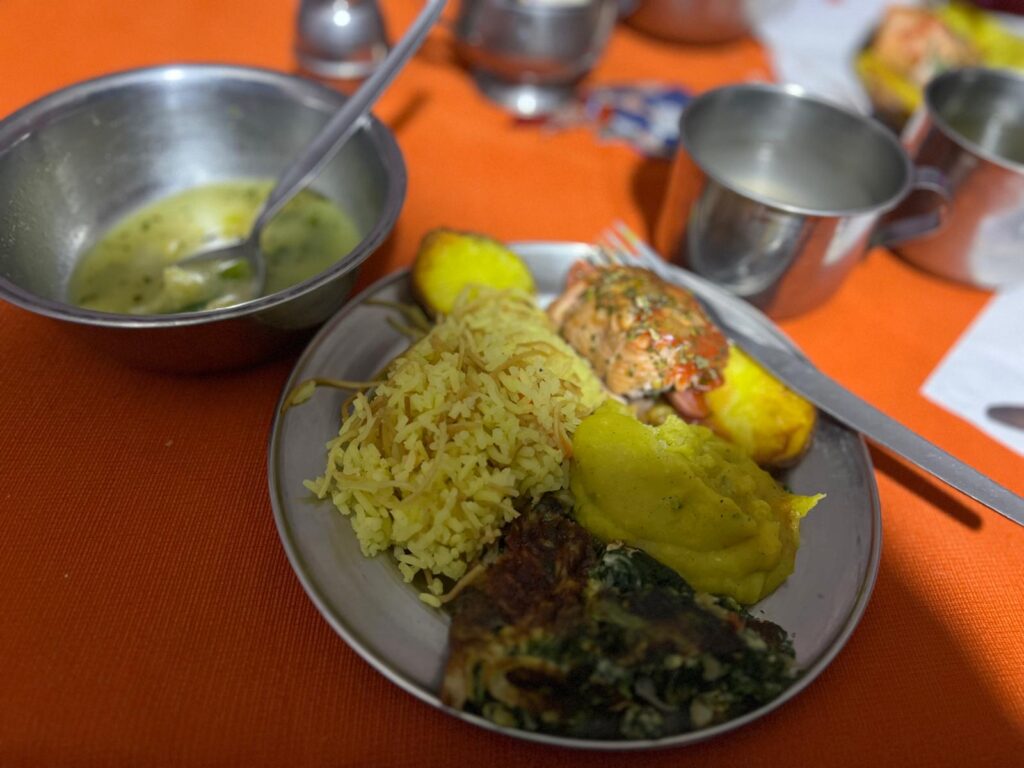
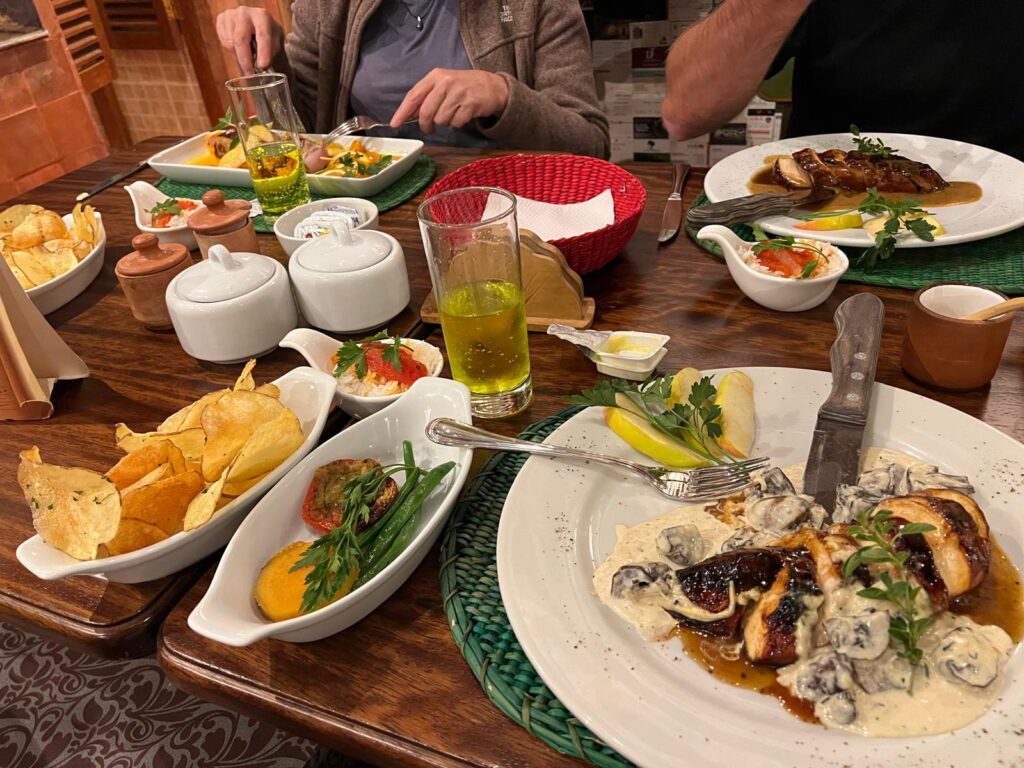
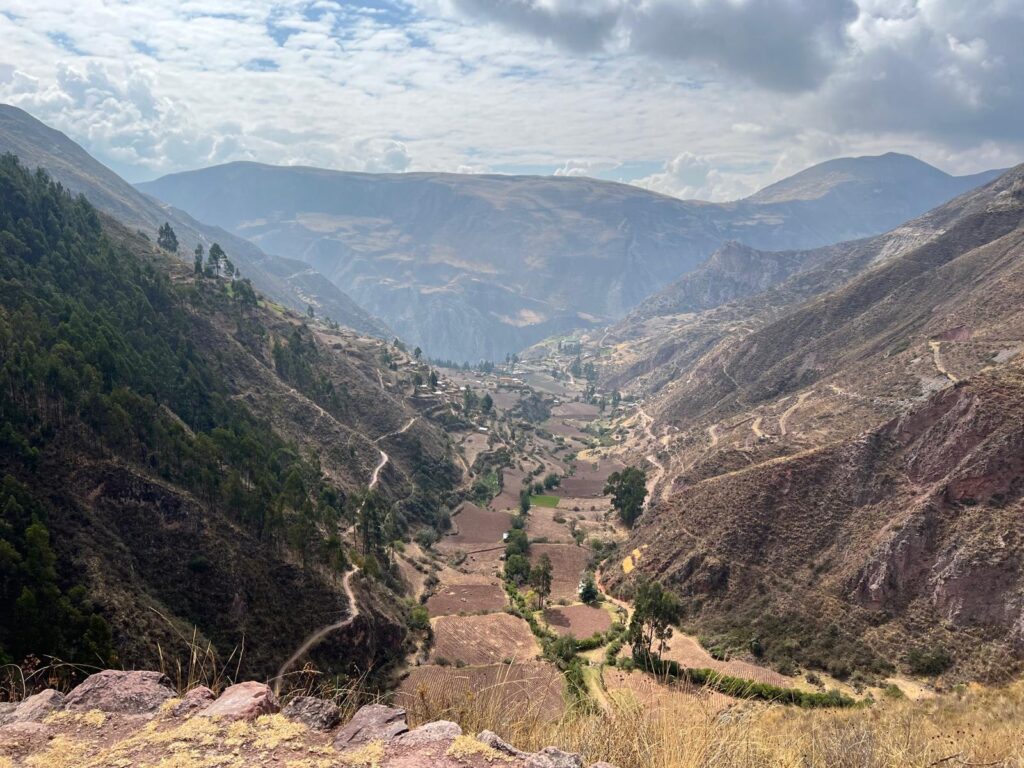
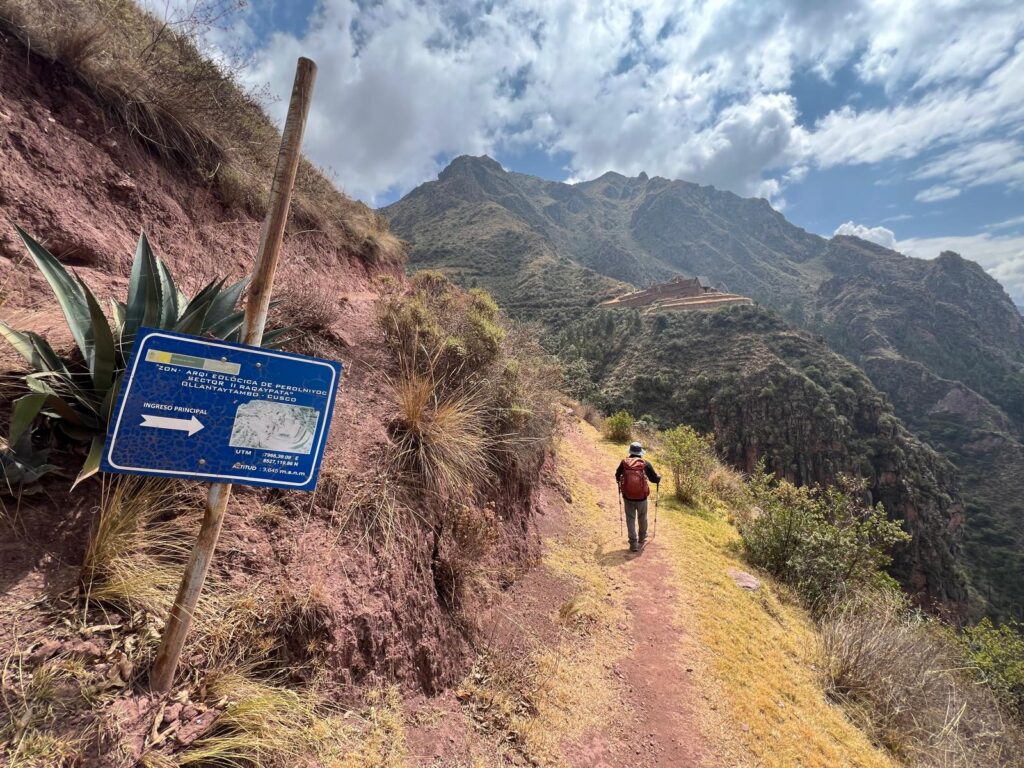
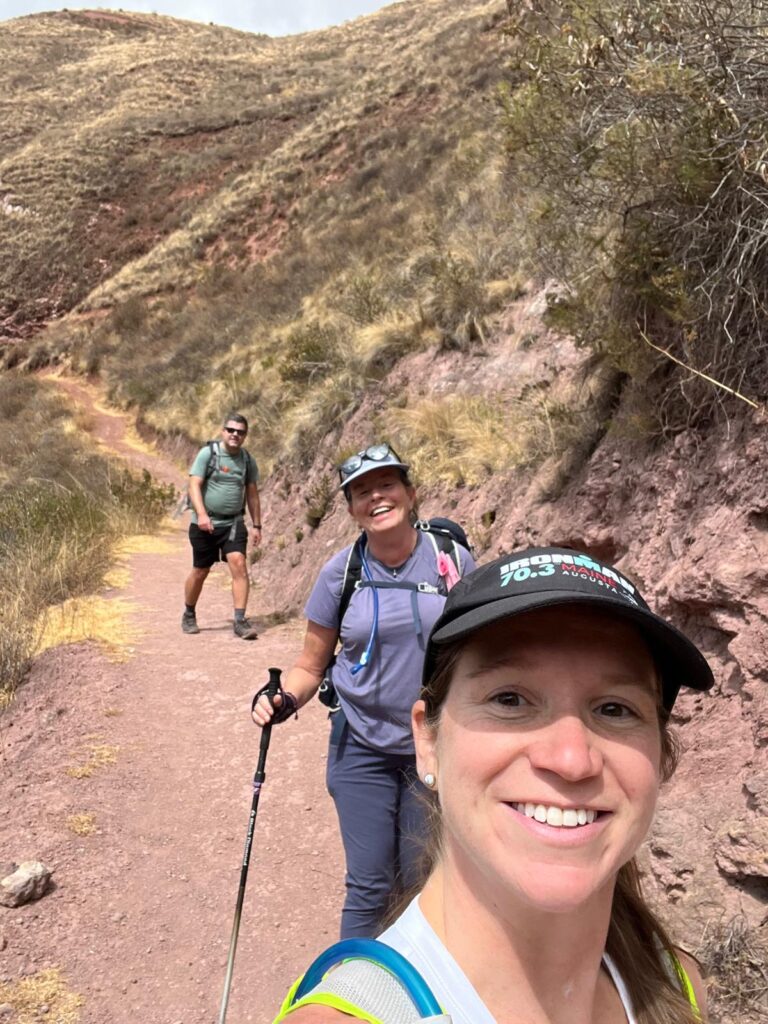
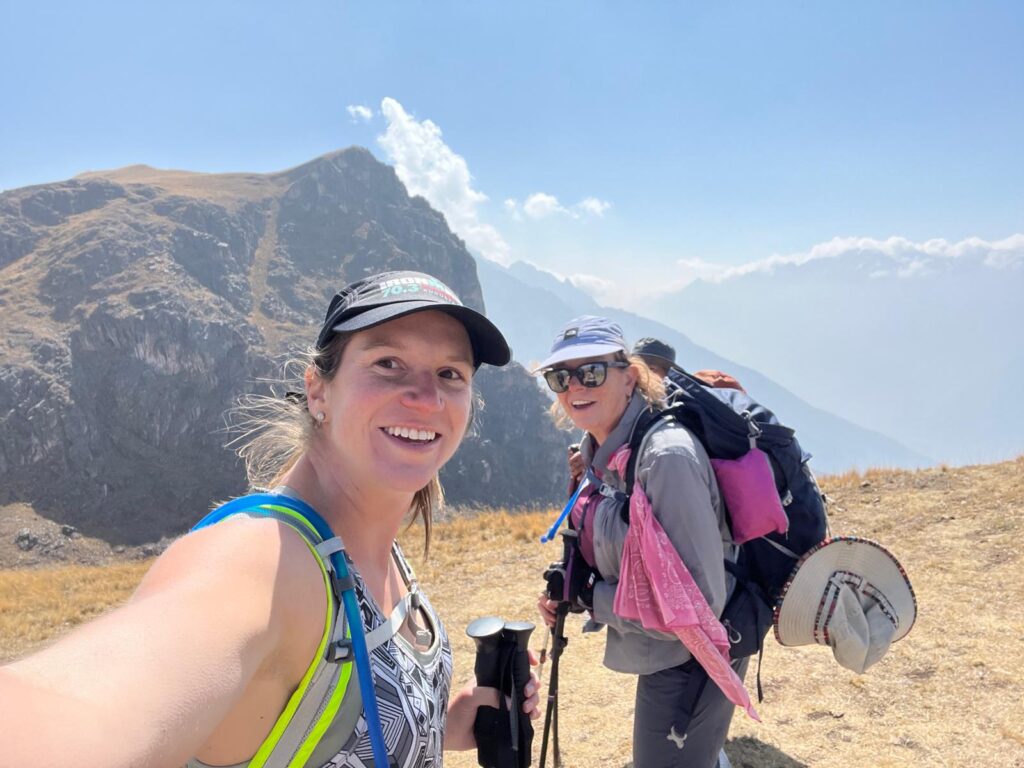
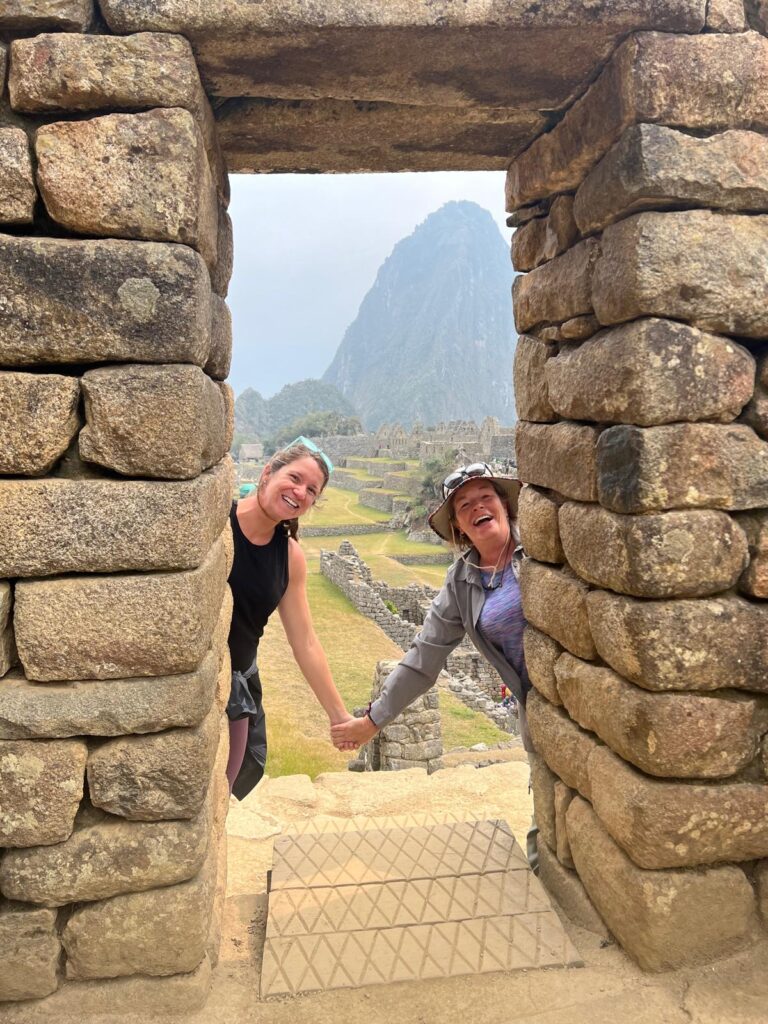
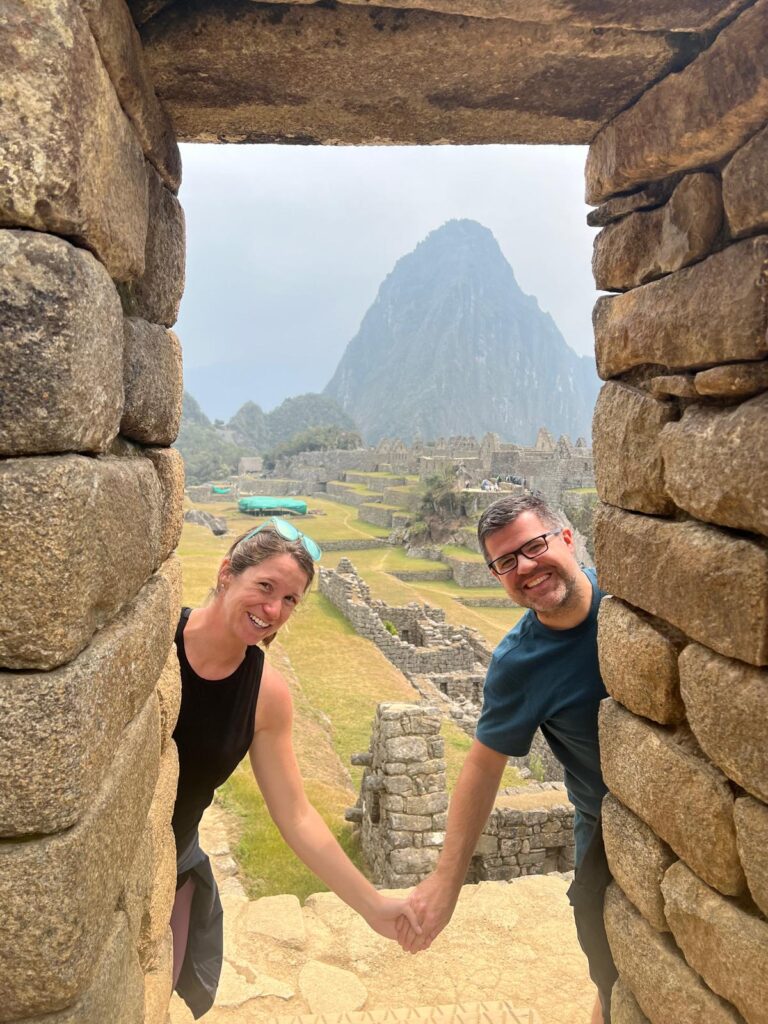
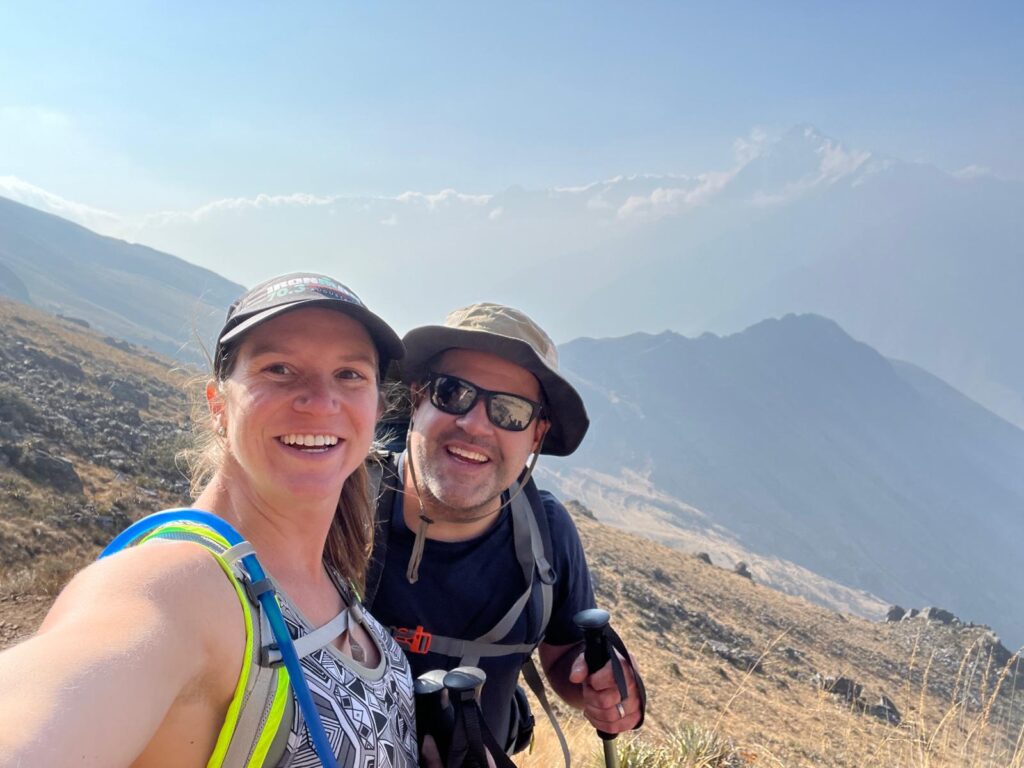
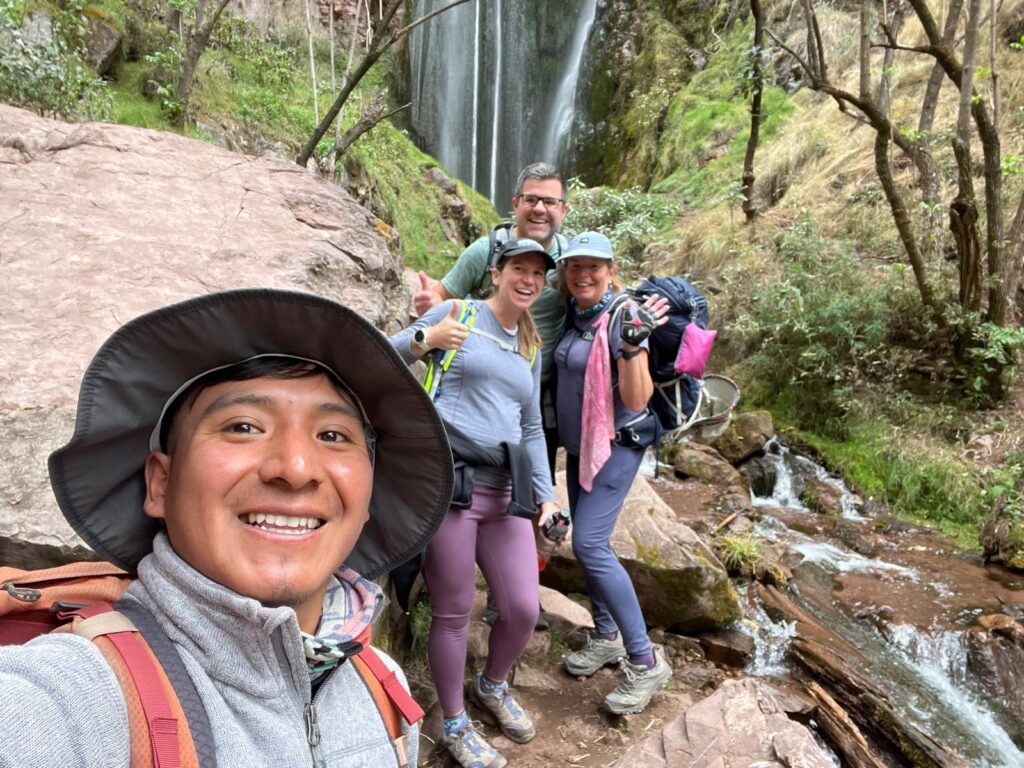
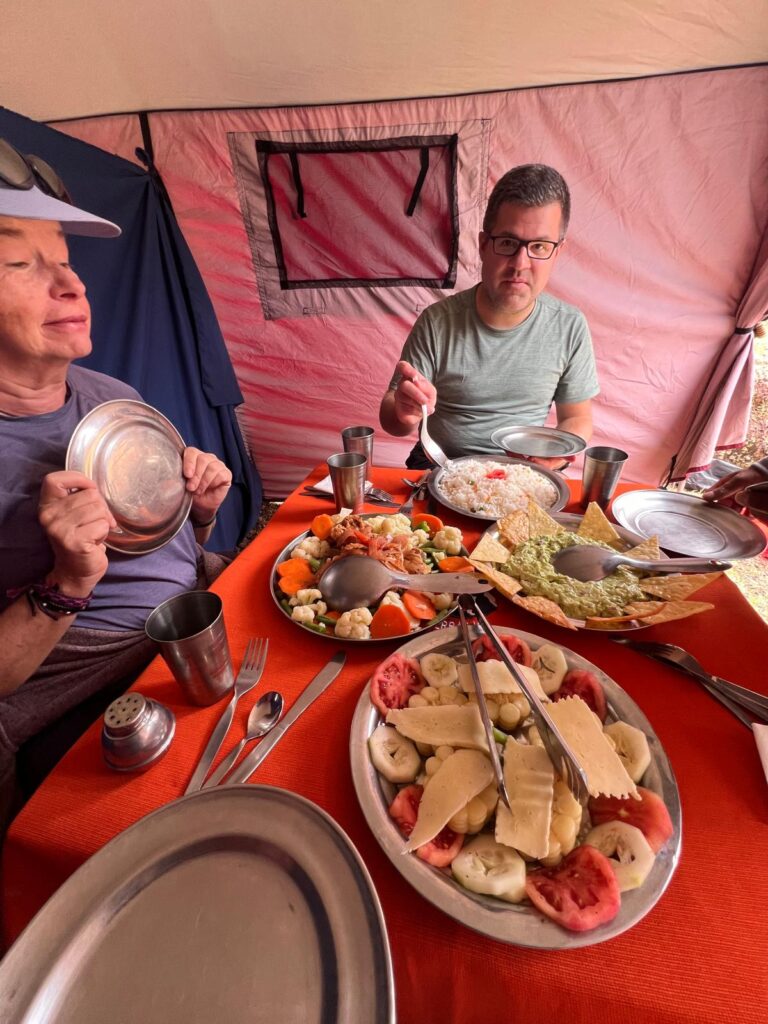
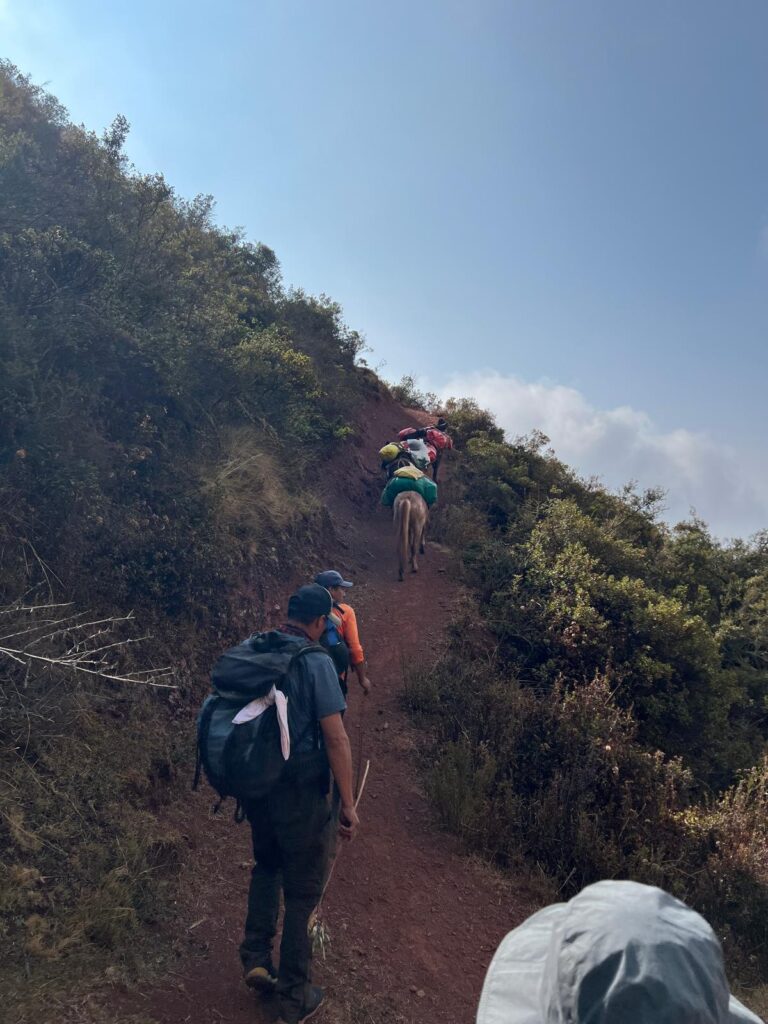
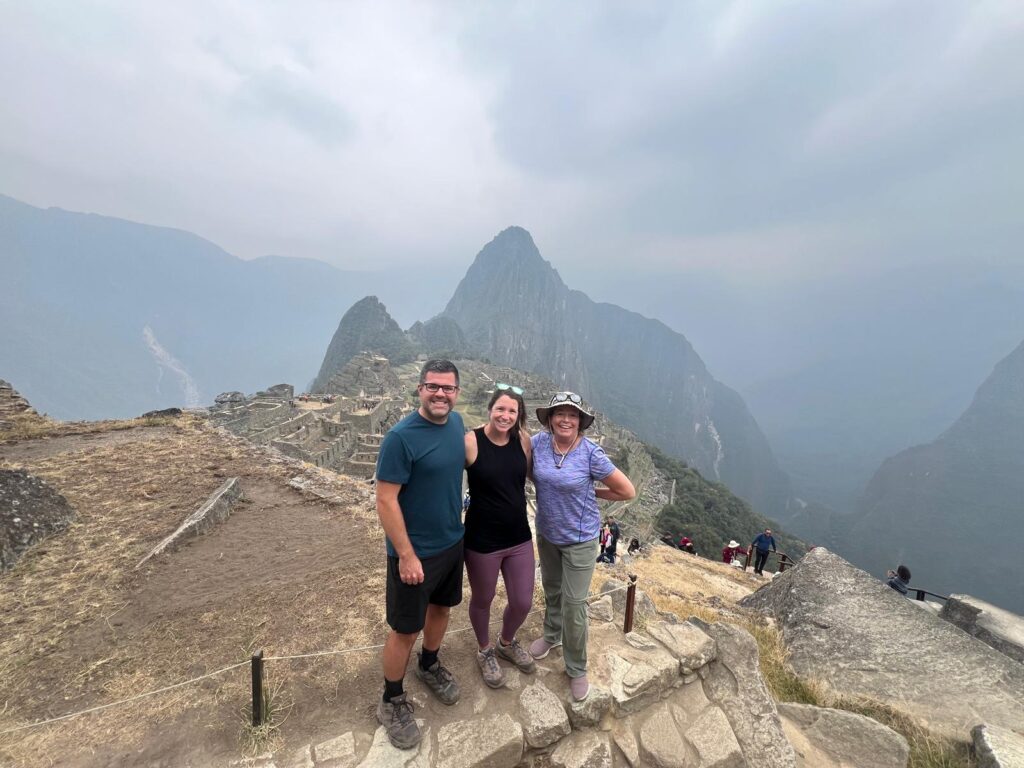
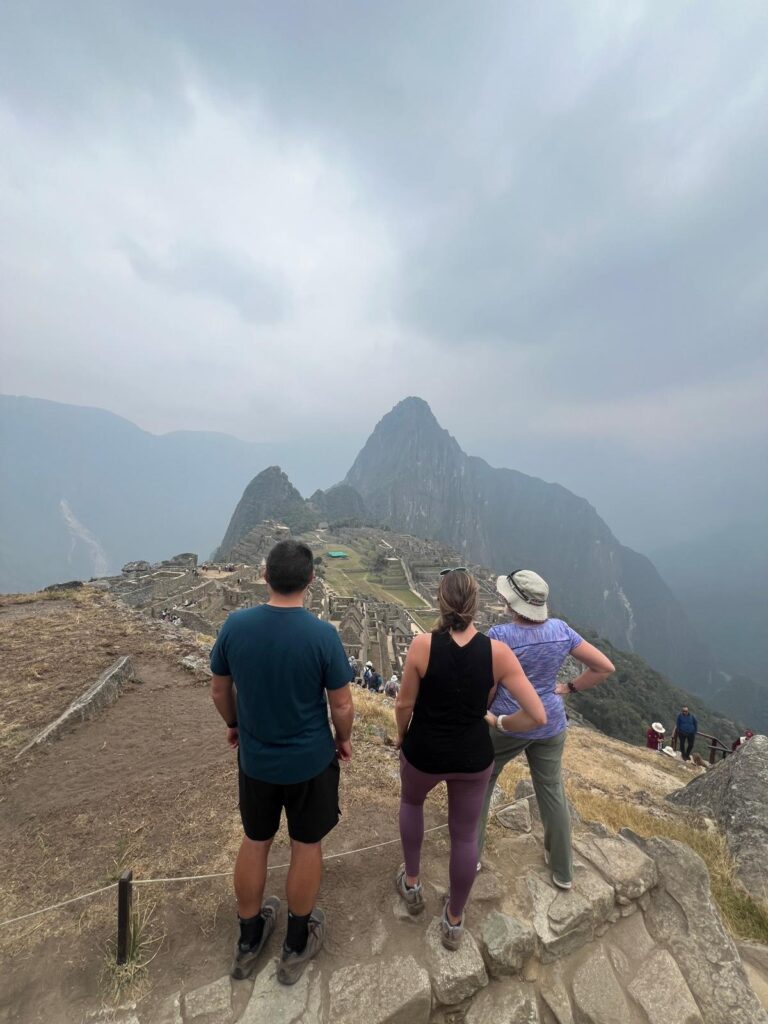
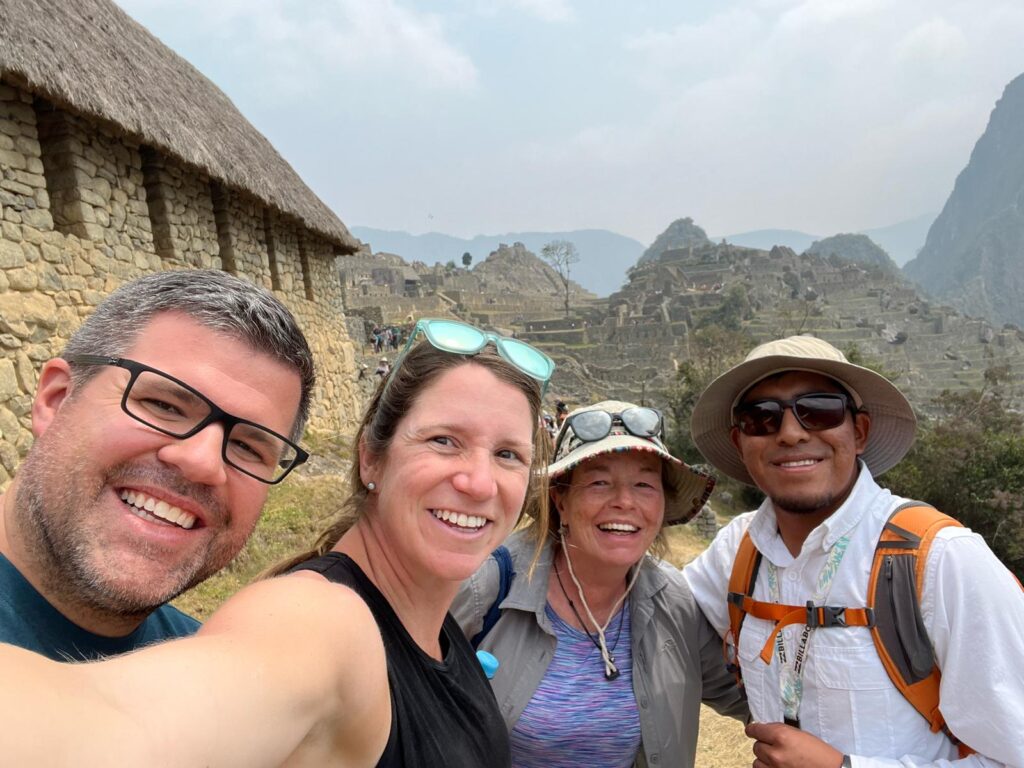
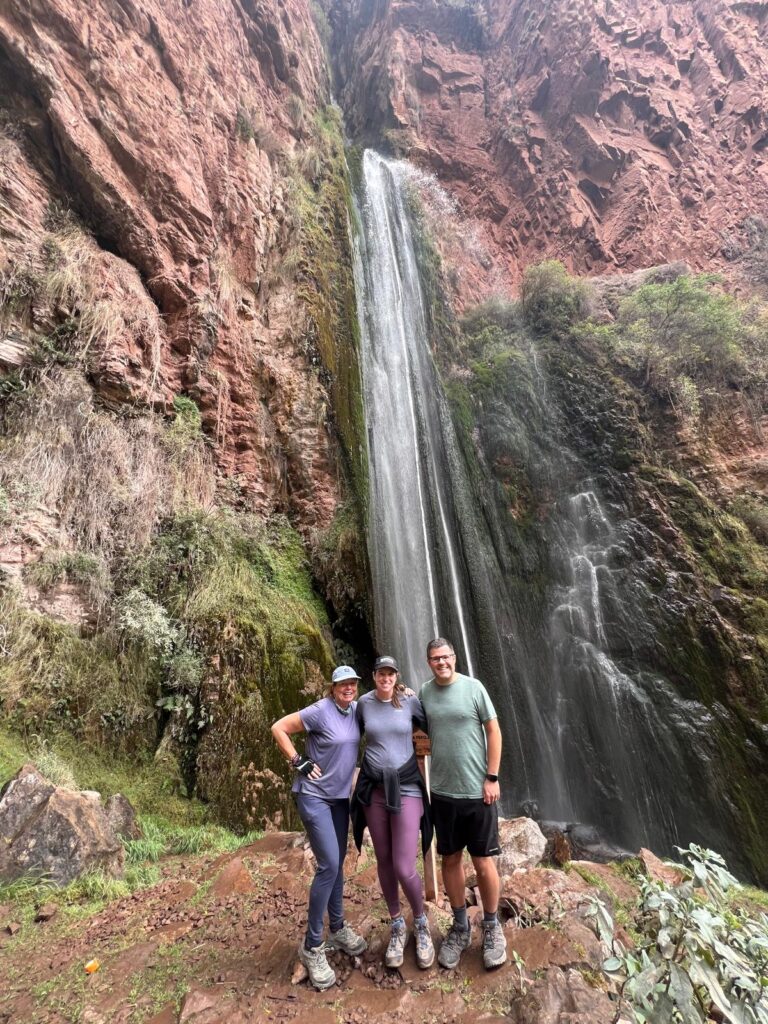
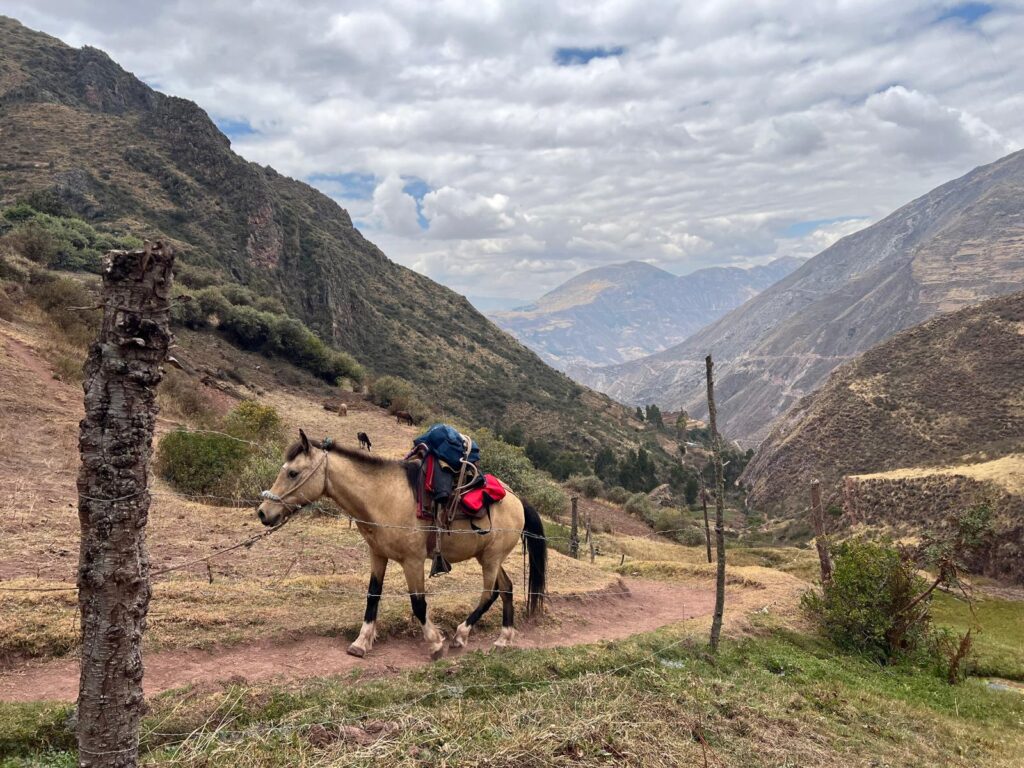
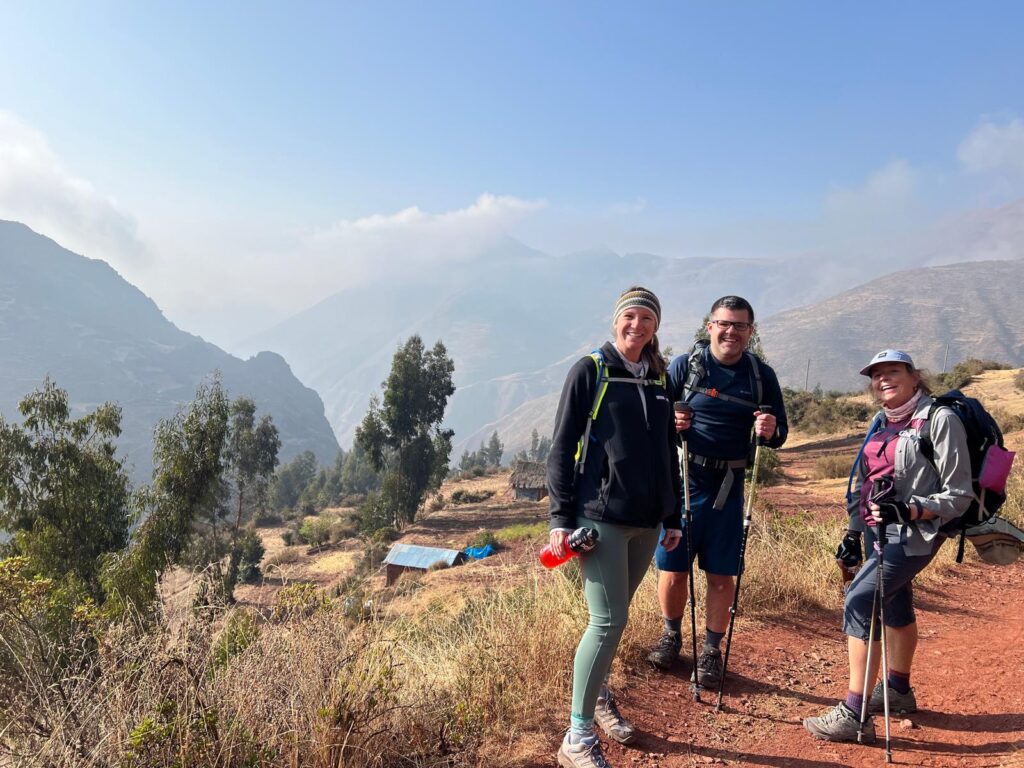
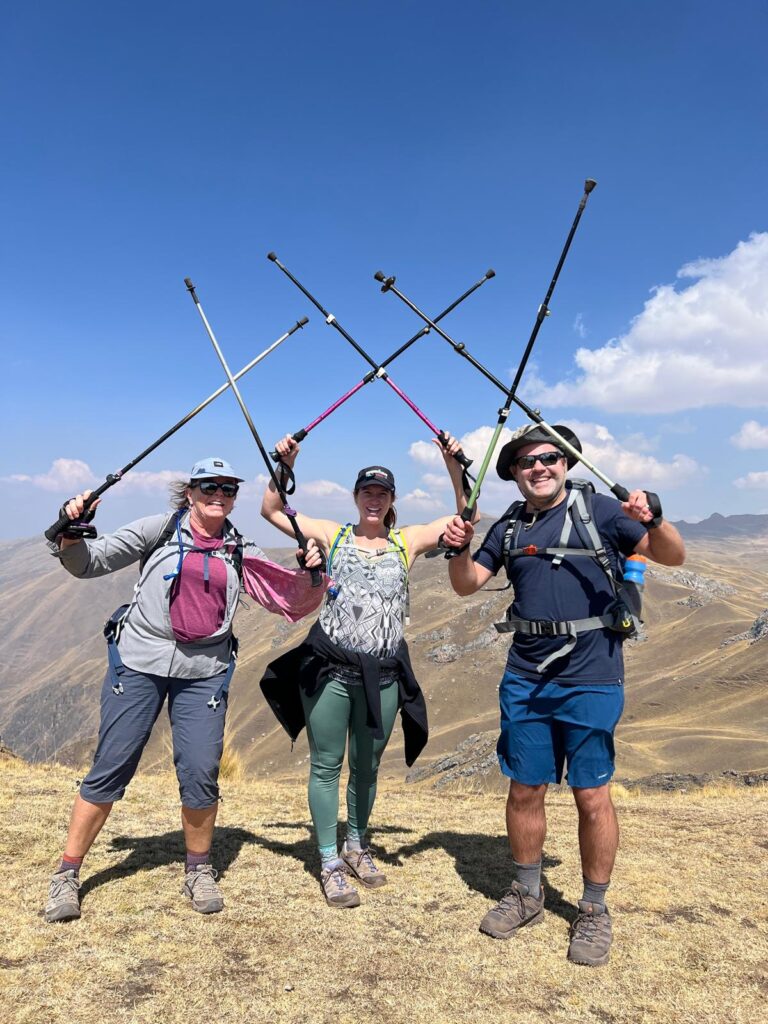
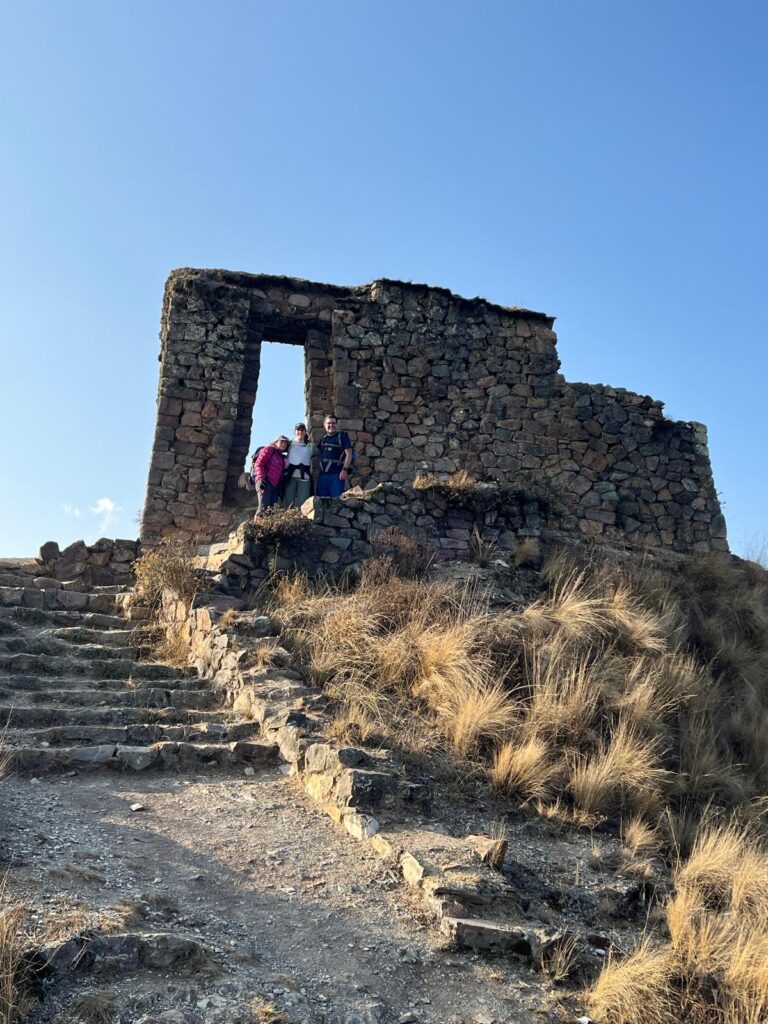
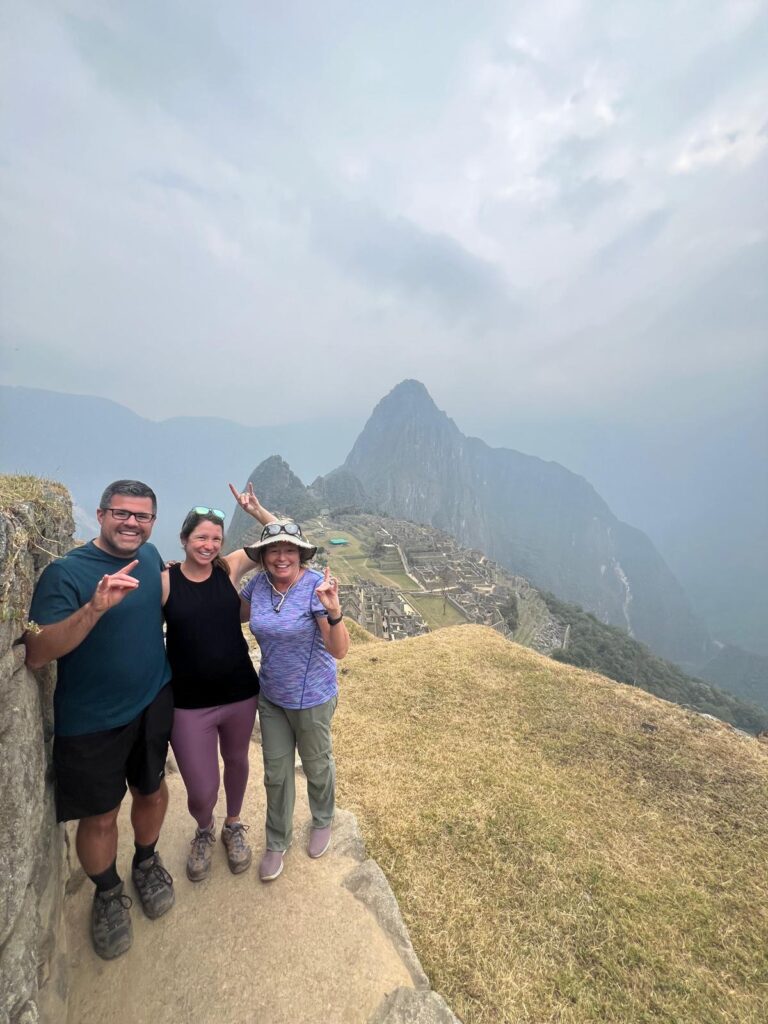
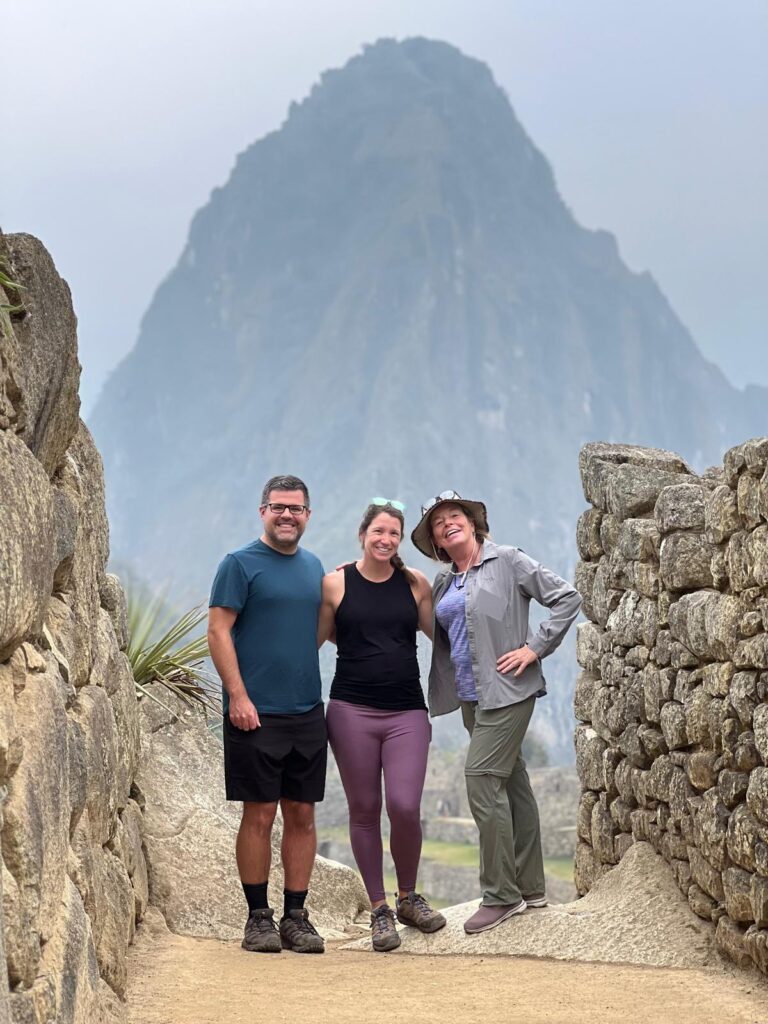
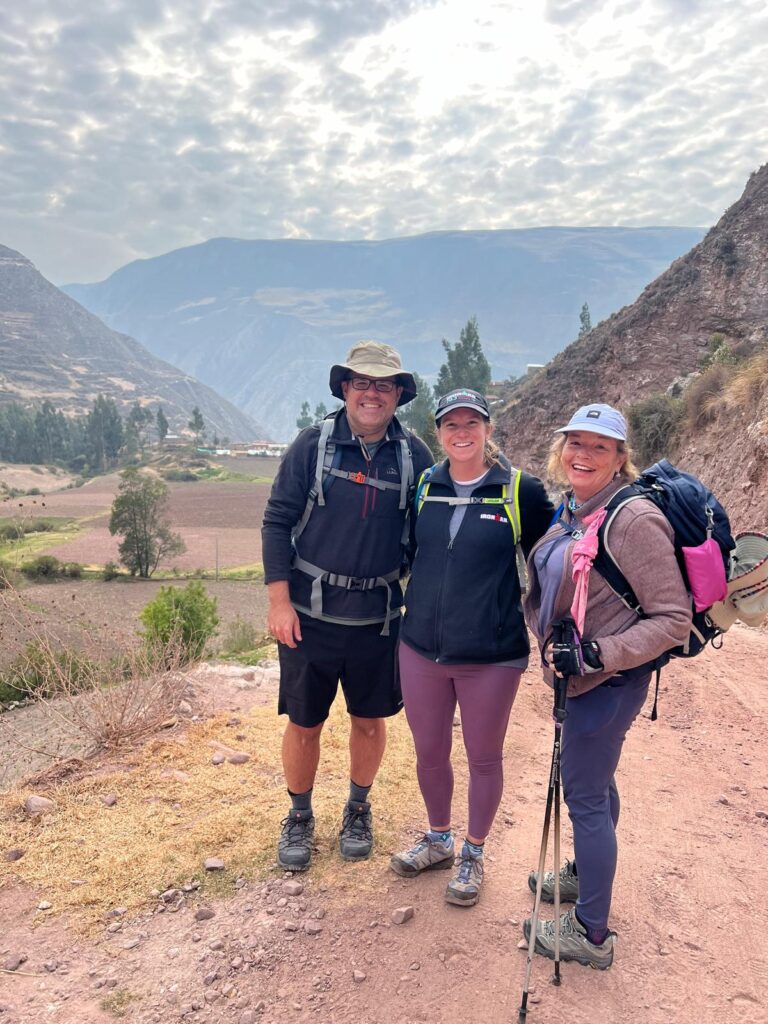

Your blogs are always wonderful, thank you for sharing. All I can say about YOU is that you are a very brave woman, resourceful and generally AMAZING!
So sorry about the theft (having lived in Italy where theft is a constant worry…)I feel your frustration. However, being the resilient person you are, allowed you to connect long distance with your spiritual friends AND locally at a mass..it wasn’t an accident that you happened to see that mans top from the US, you know that~I hope.
When I saw the first image of your Machu Pichu guide, he immediately reminded me of Mike (OH MY!)…then I realized, it was your guide.
Always with you in spirit, wishing only the very best life has to offer!
Love and hugs, Francesca
hi Francesca,
Thanks as always for your kind words and support from afar. Knowing that my family is reading and with me in spirit means so much to me, especially during the rough patches.
wishing you all the best too cousin, until we can connect in person,
love and hugs,
Sharon
Sharon, Great to read your frank account telling us the real lived travel experiences and the dilemmas you faced. So glad you made the right decisions… that night death bike race sounded treacherous as indeed did the boat trip for which at least you had no choice and was the ‘official’ necessary route..😤. Let’s hope whoever stole your emergency fund at least spent it on essentials. The difference in GDPR between Peru 🇵🇪 and Bolivia 🇧🇴 is stark and visible as you describe. The videos were amazing. Keep safe, keep travelling and enjoying your travels while we follow along at home. Much love. Mary 🇮🇪 ☘️
hi Mary,
so nice to hear from you, I think of our joyful days on the Aranui frequently, we had such a great time ! thanks too for your support and understanding of my tough decisions. I can’t believe I’m in the last days of my trip around the world, what an adventure it’s been. Stay tuned for the last few posts in South America. much love, Sharon
Dearest Sharon…as I read your blog and looked at the pictures with each deep breath I took I was filled with awe and wonder. As always, so grateful that you, and Corrine :-), are taking the time to share this adventure with us. Your courage, resilience, acceptance of what is and embracing for what it is called to be fills my heart and soul. Love you, dear friend, and continue to be with you in heart and spirit.
Deb
Dearest Debbie, You’ve been such a faithful reader this whole time! thank you for all your support, together with Corrine it has been a joy and such a rich experience to share this journey. I’m so excited that we might be together in person in November (fingers crossed and God willing).
til then,
such gratitude for our lifelong connection,
Sharon
Sharon, What an revelation your recount of your round the world voyage is. The Peru and Bolivia section is a fascinating read. Thank you for taking the time to share the physical and mental hazards of your journey. Your resilience is truly inspiring. I’m so glad to hear that the Bolivian incidents did not derail your plans.
I think of you and your exploits frequently and our serendipitous cabin choice on Aranui. It was a delight to meet such an adventurous spirit as you and to know that we can spend time together again some day in the future.
Every best wish for the remainder of your journey.